What is the Jones Act and how does it impact cruise ships?

You may have heard of the Jones Act in discussions about cruising, piquing your curiosity about what, if any, impact a century-old law has on your cruise. But I bet you haven't heard of the lesser-known Passenger Vessel Services Act, which actually dictates how cruise lines plan itineraries.
If you've ever wondered why cruise ships can't sail from one U.S. port to another without visiting a foreign country, or just like to geek out on the minutiae of legal issues around your favorite vacation type, prepare to have your mind blown about the ramifications of shipping laws on cruise travel.
For cruise news, reviews and tips, sign up for TPG's cruise newsletter

What is the Jones Act?
The Jones Act — which is actually the Merchant Marine Act of 1920 — is a federal statute that requires shipping to U.S. ports to be done by ships that were constructed in the United States, carry an American crew and bear U.S. flags (which requires being registered in the United States). In addition, the law provides protection for the crew members and the environment.
What this means is that foreign-flagged ships — and today virtually all cruise ships are foreign-flagged and registered in other countries — can't cruise between two ports that are located within the contiguous United States as well as some noncontiguous U.S. ports.
The Jones Act was not designed to cover passenger vessels.
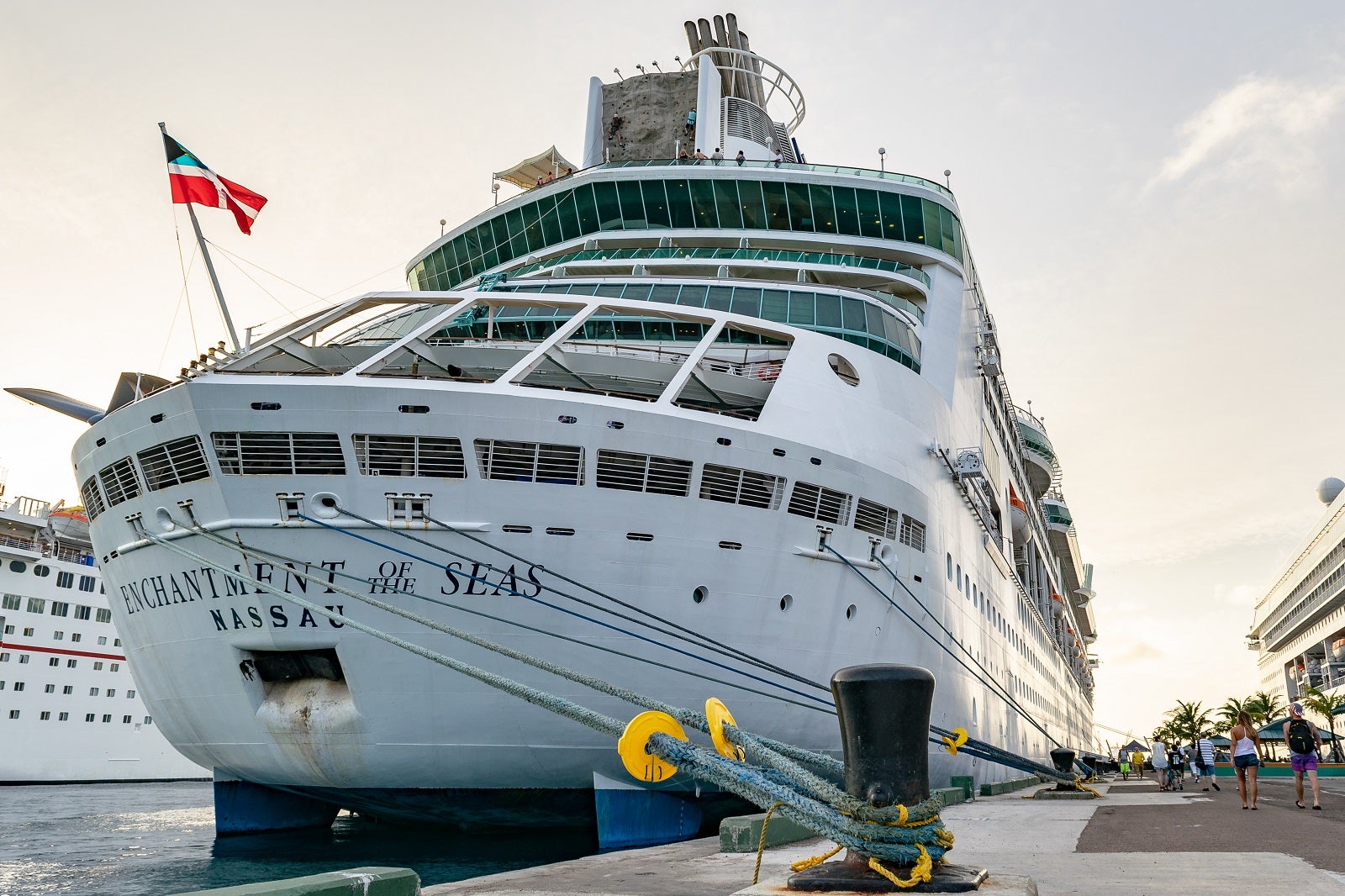
The Jones Act was originally enacted as a safety measure as part of an increase to national security after World War I, when the U.S. fleet was destroyed by Germany. It also serves as a protection to the economics of the American maritime industry, since it requires ships to be American made. After major hurricanes, the Jones Act is often temporarily waived in affected areas so relief can arrive from anywhere.
Related: Everything you need to know about hurricane season cruises
The Passenger Vessel Services Act — and how it affects cruises
The related law that has a real effect on the cruise industry — since the cargo of a cruise ship is you — is the Passenger Vessel Services Act (PVSA) of 1886, which is applicable even though it was enacted before the cruise industry existed as we know it.
The law says that if an itinerary begins and ends in a U.S. port, foreign-flagged cruise lines must call on foreign ports of call as well. As a result of these laws, you won't find, for example, itineraries on foreign-flagged ships that sail round-trip from Los Angeles to the Hawaiian Islands or from New York up and down the U.S. East Coast without also stopping in another country (e.g. Mexico or Canada). These rules impact sailings to Canada, the Caribbean, Mexico, Panama Canal, Hawaii and Alaska the most.
Cruise lines create PVSA-compliant itineraries, but sometimes the chaos of travel intervenes. If a passenger disembarks early (perhaps due to a medical emergency) without calling on the foreign port, the line risks getting fined. Cruise travelers who miss the ship are also not allowed to embark in just any port of call. They must board in a place in the itinerary that includes a foreign port as part of the remaining portion of the cruise.
Related: What happens if you miss your cruise
Here's where it gets tricky: A cruise that begins and ends in the same U.S. port will not violate the PVSA if it stops in any foreign port. However, a cruise that begins and ends in different U.S. ports (e.g. a Panama Canal cruise that begins in Fort Lauderdale and ends in Los Angeles) must stop in a distant foreign port to be in compliance.
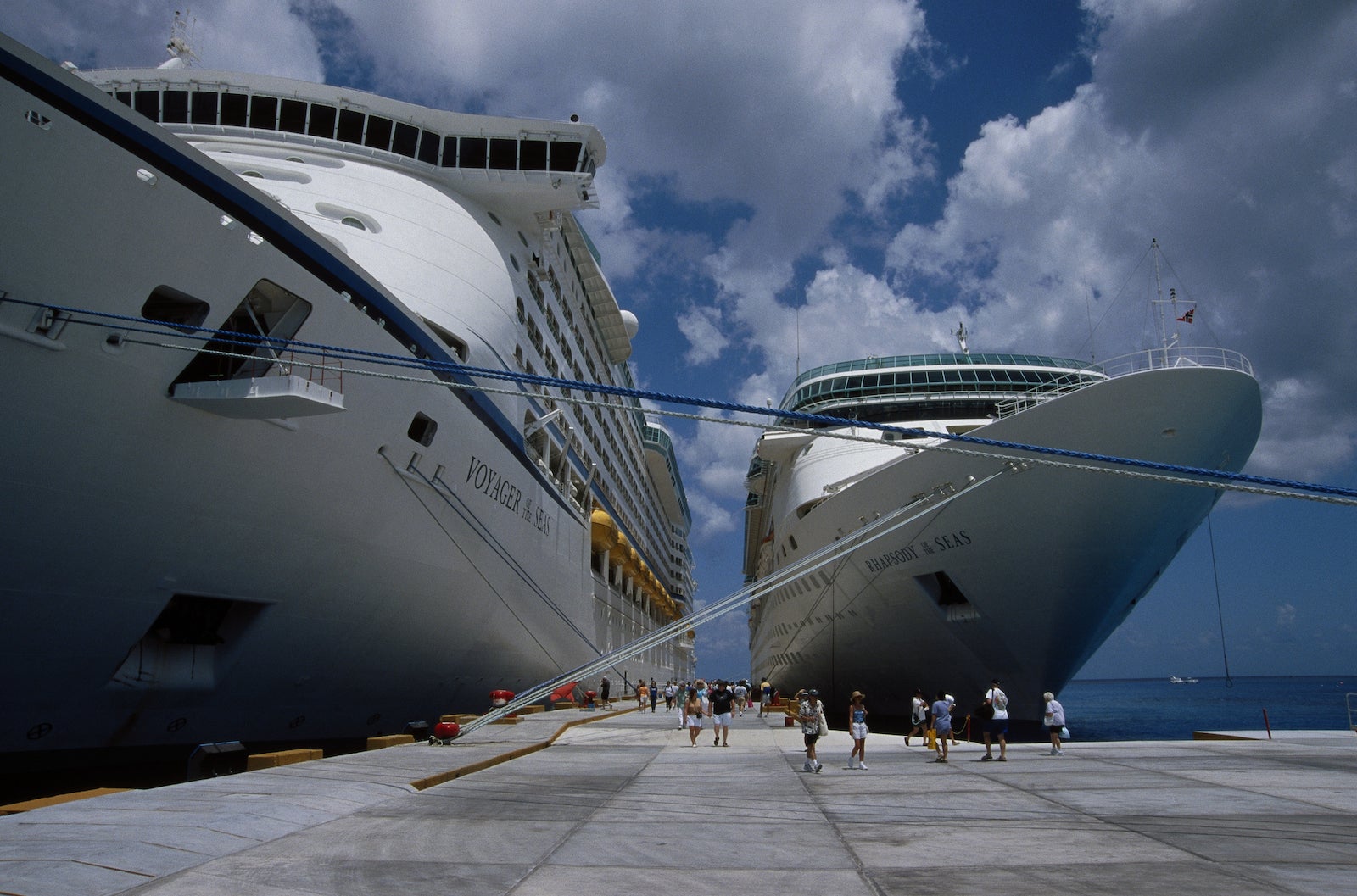
A distant foreign port is defined as any port outside North America, Central America, Bermuda or the West Indies. South American ports and the Leeward Islands of the Netherland Antilles (Aruba, Bonaire and Curacao) are all considered distant foreign ports. That's why any Panama Canal cruise that sails from Florida to California will include a stop in Cartagena, Colombia, or Aruba.
This distinction often confuses passengers trying to book back-to-back sailings who find their request denied even though each individual sailing meets the PVSA requirements. That's because a back-to-back sailing is still considered one transport vs. two distinct sailings, even though cruisers need to debark their ship between cruises and meet with Customs and Border Patrol for inspection before reboarding.
Try to book a repositioning cruise from Seattle to Vancouver followed immediately by that ship's next cruise from Vancouver to Seward, Alaska, and your request will be flagged and denied. Why? According to the law, the cruise ship has transported you from one U.S. port to another (Seattle to Seward) without stopping in a distant foreign port.
The exceptions: American-flagged ships
American-flagged ships are exempt from the PVSA and can sail itineraries their foreign-flagged counterparts cannot.
Norwegian Cruise Line runs a U.S.-flagged ship — Pride of America — which sails around the Hawaiian Islands round-trip from Honolulu. When this ship (which was only partially built in the United States) launched in 2005, it was the first cruise ship in 50 years to fly the American flag while sailing on an ocean — and the only to sail Hawaii cruises without visiting a non-U.S. port.
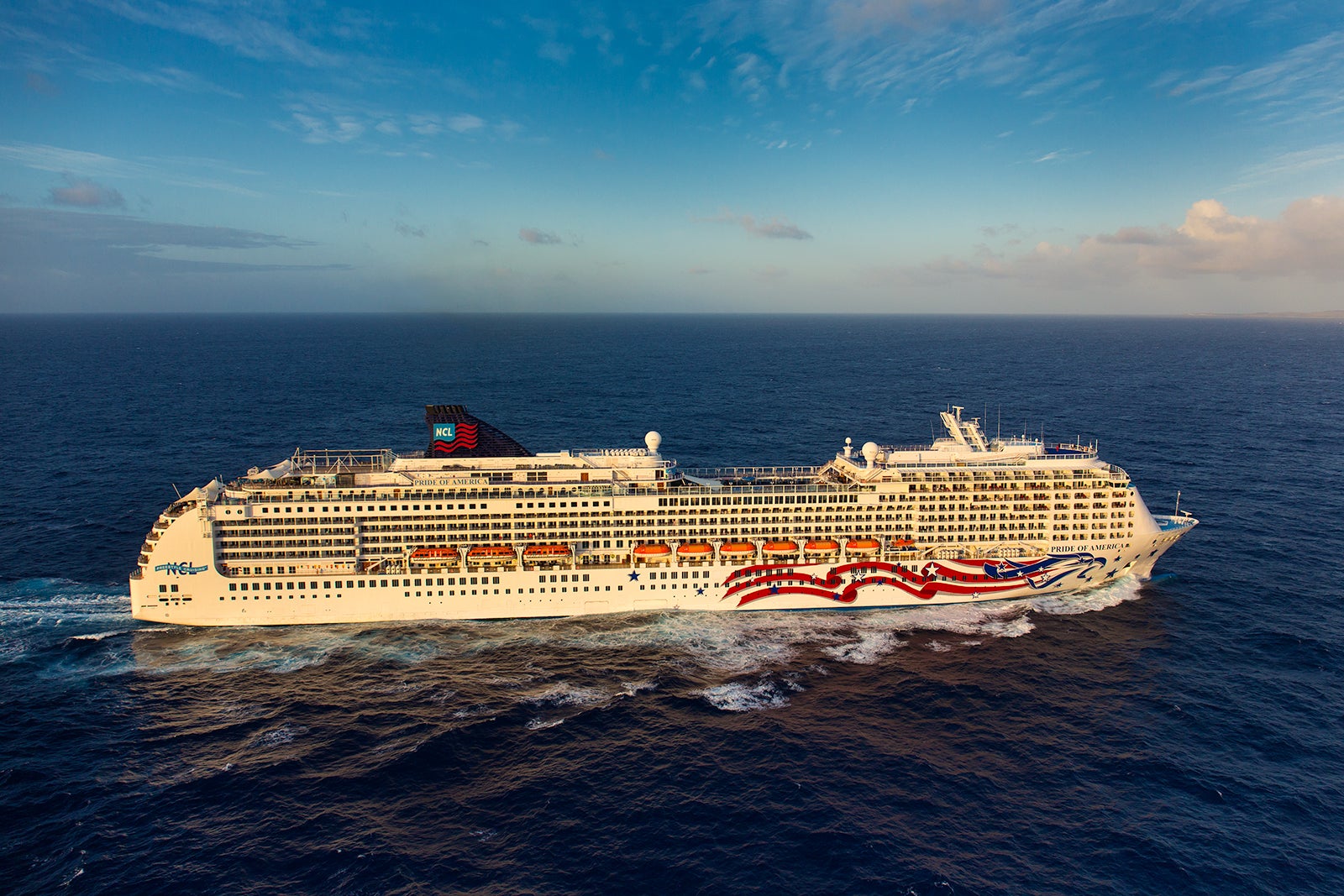
There are also cruise ships that are part of smaller lines that are registered in the U.S., including ones operated by Alaska Dream Cruises, Lindblad Expeditions and UnCruise Adventures . They sail itineraries wholly within Alaska or the Hawaiian islands.
Related: Big vs. small cruise ships: Which will I like better?
In addition, several riverboat companies, such as American Queen Voyages and American Cruise Lines, operate U.S.-flagged vessels on American rivers.
So why would most major large-ship cruise lines continue to register their ships in other countries, such as the Bahamas, Panama, Bermuda and Malta? Building ships on U.S. soil is a much more expensive proposition than in the European shipyards that most lines favor. In addition, U.S.-flagged ships are subject to high American taxes and stricter labor laws, environmental codes and consumer protection laws than ships registered in other countries.
Bottom line
The Jones Act and Passenger Vessels Services Act impact how cruise lines plan itineraries. Most of the time cruise travelers can ignore these obscure old maritime laws. However, it's good to know what they are on the rare occasion you have to join a cruise late or disembark early, or when you want to plan back-to-back cruises that begin and end in different ports.
Planning a cruise? Start with these stories:
- The 5 most desirable cabin locations on any cruise ship
- The 8 worst cabin locations on any cruise ship
- A quick guide to the most popular cruise lines
- 21 tips and tricks that will make your cruise go smoothly
- 15 ways cruisers waste money
- 12 best cruises for people who never want to grow up
- What to pack for your first cruise

- Cruise News
Maritime Law: The One Change That Could Save The Cruise Industry
Bruce Parkinson
- October 26, 2020
For over 100 years, U.S. legislation called The Jones Act has dictated that only American-owned, crewed, registered and built ships can transport cargo between U.S. ports.
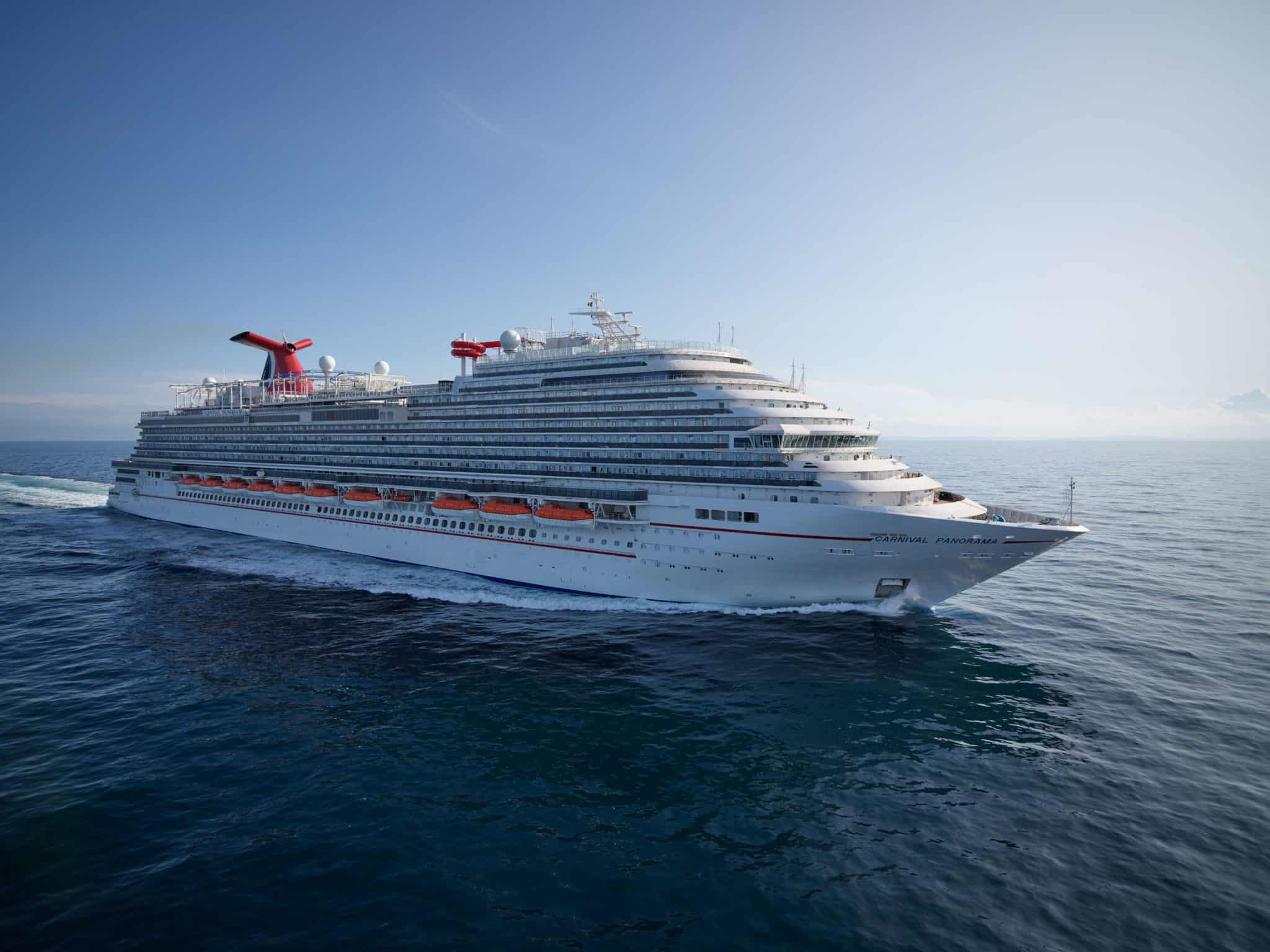
An even older law — the Passenger Vessel Services Act of 1886 — bans foreign-registered ships from transporting passengers between ports in the U.S.
How do these rules impact the cruise industry? Quite significantly.
The Jones Act was passed as part of the Merchant Marine Act of 1920 and justified on national security grounds as a way of boosting the U.S. maritime industry.
Passenger Vessel Services Act (PSVA)
Folded into the Jones Act is much of the content of the 1886 Passenger Vessel Services Act (PVSA). This is the part that really impacts the cruise industry.
The PVSA reads in part :
No foreign vessels shall transport passengers between ports or places in the United States, either directly or by way of a foreign port, under a penalty of $200 [now $778] for each passenger so transported and landed.
This means that ships of non-U.S registry are barred from taking on and debarking guests at two different U.S ports. An example is that a cruise ship can not sail non-stop from New York to Miami.
But there are some exemptions that relate to the cruise industry :
- Foreign-flagged ships can depart from and return to the same U.S. port, provided there’s a stop in between at a foreign port. An example is an Alaska cruise out of Seattle, which can stop at Alaskan ports provided a stop is made in Vancouver or another Canadian west coast port before returning to Seattle.
- Foreign-flagged ships can depart from a U.S. port, stop at a ‘distant’ foreign port, and then continue to a second U.S. port. But to qualify for the exemption they must visit a port outside of North America and the Caribbean. For example, a cruise departing New York and circumnavigating South America, with stops on that continent, can then send passengers home from Los Angeles.
U.S Flagged Pride of America
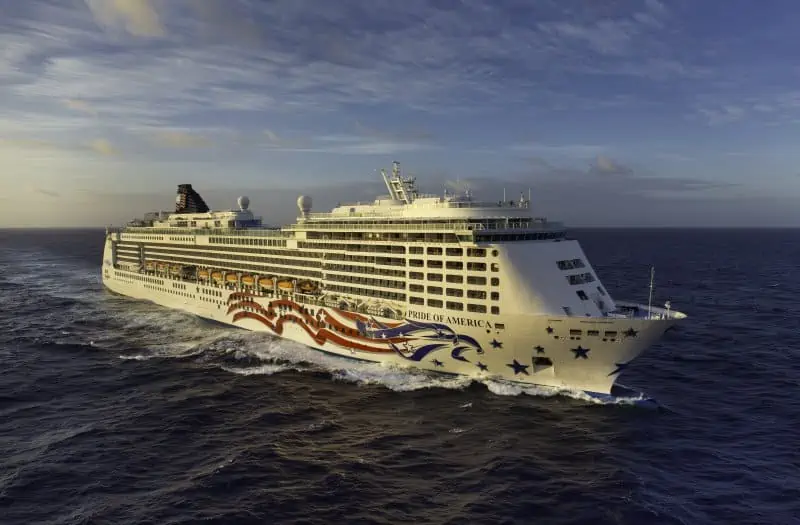
The only current large oceangoing cruise ship to fly the flag of U.S. registration is Norwegian Cruise Line’s Pride of America , which offers multiple-stop cruises in the Hawaiian islands. It was inaugurated in 2005 as the first new U.S.-flagged cruise ship in nearly fifty years.
Pride of America was partially built in Mississippi, with significant federal subsidies, and completed in Germany. It still required a special federal exemption to attain U.S. registration.
As a U.S.-flagged ship, Pride of America is subject to American labor laws and staffed by a mostly American crew, in contrast to the vast majority of cruise ships.
How Do These Laws Impact Cruise Ships?

While many of the major cruise brands are American-owned, the vast majority of ships are registered in other countries — meaning they are “foreign-flagged.”
Under international law, all merchant ships must be part of a registry created by a country, and ships are subject to the laws of the country where they are registered.
Although the practice is now common around the world, it is often contentious. Vessels registered in places like the Bahamas, Panama, Liberia and Malta are often referred to negatively as flying “flags of convenience.” To have a cruise ship flagged in the United States, it must be built, owned, and crewed by Americans.
The modern practice of ships being registered in a foreign country began in the U.S. in the 1920s, when shipowners who wanted to serve alcohol to passengers during Prohibition began registering vessels in Panama.
FACT CHECK: Do Cruise Lines Pay US Taxes?
They soon discovered other advantages, including less-burdensome regulations as well as lower taxes and labor costs. As a result, many continued to register their ships in Panama and elsewhere long after Prohibition ended.
The rise of river cruising in the U.S. has breathed some new life into American shipbuilding and created American crew jobs, as those ships must be U.S.-registered in order to stop at multiple domestic ports.
TIMELINE: 2020 Cruise Industry Shutdown
For cruise lines, one drawback of foreign-flagging was demonstrated earlier this year, when some argued that the companies should not qualify for government assistance during the global health crisis because they had chosen to register their ships abroad.
Despite suffering massive losses due to the industry shutdown, the major lines have had to find ways to secure their own financing in order to stay afloat until they can once again begin generating revenue.
Restarting and Saving The Cruise Industry
As the United States cruise industry prepares for a safe relaunch, some aspects of what many consider to be archaic legislation may need to be reexamined.
This may become a larger issue in 2021, as the Canadian government currently bans all cruise ships carrying over 100 persons (passengers and crew) from operating within its waters. There’s no word yet on whether Canada will lift that restriction prior to the start of the 2021 Alaska cruise season next April.
‘Cruises to nowhere’ could be one way of offering a vacation while limiting the exposure of passengers to others. And East Coast foliage cruises that stop only at U.S. ports might be a solution if Canada continues to restrict entry.
Asia and Europe are bending the rules to get cruise ships sailings again, will the United States?
Recent Posts
Carnival mardi gras crew honored for rescuing 16 people at sea, search halted for crew member who jumped from cruise ship, search for missing cruise passenger in cozumel transitions to recovery, princess cruises rolls out more flexible dining options, share this post, related posts.

Is a Cruise Ship Crisis Ahead? Why Bigger Isn’t Necessarily Better

What is the Cruise Vessel Safety and Security Act (CVSSA)?

Bringing you 15 years of cruise industry experience. Cruise Radio prioritizes well-balanced cruise news coverage and accurate reporting, paired with ship reviews and tips.
Quick links
Cruise Radio, LLC © Copyright 2009-2024 | Website Designed By Insider Perks, Inc
- Maritime law
- Shipowners’ Rights and Responsibilities
- Marine Accidents
- Cargo Claims
- Admiralty Claims
- Environmental Law and Maritime Pollution
- Maritime Dispute Resolution
- Cruise Ship Law
Introduction to Cruise Ship Law
Cruise ship law is a body of law that governs the operation of cruise ships. It covers a wide range of topics, including safety, liability, and the rights of passengers.
Table of Contents
What is Cruise Ship Law
Cruise ship law is a complex and ever-evolving field of law. It is based on a combination of international treaties, national laws, and custom.
The main sources of international cruise ship law are the following:
- The International Convention for the Safety of Life at Sea (SOLAS)
- The International Convention on Civil Liability for Oil Pollution Damage (CLC)
- The International Convention on the Limitation of Liability for Maritime Claims (LLMC)
The national laws of each country also play an important role in cruise ship law. These laws may supplement or modify the provisions of international treaties.
Cruise Ship Law for Ship Owners
The ship owner has a number of legal obligations under cruise ship law. These obligations include:
- The obligation to provide a seaworthy vessel : This means that the ship must be fit for its intended purpose and free from any defects that could cause harm to passengers. The ship owner is responsible for inspecting the ship regularly and making any necessary repairs.
- The obligation to exercise due diligence to ensure the safety of passengers : This means that the ship owner must take all reasonable steps to protect passengers from harm. This includes things like providing adequate safety equipment, training crew members on safety procedures, and following all applicable safety regulations .
- The obligation to comply with all applicable safety regulations : This means that the ship owner must comply with all laws and regulations that apply to the operation of cruise ships. These regulations are designed to protect passengers from harm and to prevent accidents.
- The obligation to compensate passengers for any losses or injuries caused by the negligence of the ship owner : This means that the ship owner is liable for any losses or injuries that passengers suffer as a result of the ship owner’s negligence. Negligence can include things like failing to provide a safe vessel, failing to follow safety procedures, or failing to properly train crew members.
Tourist Perspective of Cruise Ship Law
Passengers on cruise ships also have a number of legal rights under cruise ship law. These rights include:
- The right to be safe : Passengers have the right to be safe while on a cruise ship. This means that they have the right to expect that the ship will be seaworthy and that the ship owner will take all reasonable steps to protect them from harm.
- The right to be compensated for any losses or injuries caused by the negligence of the ship owner : Passengers have the right to be compensated for any losses or injuries that they suffer as a result of the ship owner’s negligence. This includes things like medical expenses, lost wages, and pain and suffering.
- The right to be informed of the risks associated with cruising : Passengers have the right to be informed of the risks associated with cruising. This includes things like the possibility of accidents, the possibility of illness, and the potential for natural disasters.
- The right to be treated fairly by the cruise line : Passengers have the right to be treated fairly by the cruise line. This includes things like being given a refund if the cruise is canceled or delayed, being given adequate food and water if the cruise is disrupted, and being protected from discrimination.
Related posts:
- Cruise Ship Passenger Rights and Safety Regulations
- Cruise Ship Contracts: A Legal Perspective
- Legal Perspective of Cruise Ship Accidents and Injuries
- Notable Cruise Ship Legal Cases
Leave a Reply Cancel reply
Your email address will not be published. Required fields are marked *
Save my name, email, and website in this browser for the next time I comment.
Recent Posts
- Safety at Sea: The Legal Backbone of Maritime Operations
- Navigating the Legal Seas: The Operation and Regulation of Jack-Up Barges
- Spud Barge Operations and Legal Considerations in Maritime Law
- Navigating Legal Waters: Understanding Liability in Barge Accidents
- Stevedore Lawsuit: Navigating the Legal and Operational Challenges
Popular posts
- February 2024
- January 2024
- December 2023
- November 2023
- October 2023
- September 2023
- August 2023

Lawyer Up Now - Get Your Free Consultation
" * " indicates required fields

- Our Attorneys
- Areas We Service
- Testimonials
- Personal Injury
- Statute of Limitations for Cruise Ship Accident Injuries
- Slip & Fall Accidents on a Cruise Ship
- Catastrophic Accidents on Cruise Ships
- Technical Issues Accidents on a Cruise Ship
- Sexual Assault on a Cruise Ship
- Malfunctioning Equipment Accidents on a Cruise Ship
- Swimming Pool Accidents on a Cruise Ship
- Overboard Accidents on Cruise Ships
- Slip, Trip, & Fall
- Car Accidents
- Negligent Security
- Rideshare Accidents
- Worker’s Compensation
- Premises Liability
- Wrongful Death
- Search Search Please fill out this field.
What Is the Jones Act?
Understanding the jones act.
- Requirements
- Jones Act FAQs
The Bottom Line
- Laws & Regulations
- Investing Laws
What Is the Jones Act? Definition, History, and Costs
:max_bytes(150000):strip_icc():format(webp)/wk_headshot_aug_2018_02__william_kenton-5bfc261446e0fb005118afc9.jpg)
Investopedia / Dennis Madamba
The Jones Act is a federal law that regulates maritime commerce in the United States. The Jones Act requires goods shipped between U.S. ports to be transported on ships that are built, owned, and operated by United States citizens or permanent residents.
The Jones Act is Section 27 of the Merchant Marine Act of 1920, which provided for the maintenance of the American merchant marine.
Key Takeaways
- The Merchant Marine Act of 1920, better known as the Jones Act, is a protectionist law that regulates maritime shipping in the United States.
- The Jones Act requires that any cargo traveling by sea between two U.S. ports must sail on an American-owned ship, built in the United States and with a majority crew of U.S. citizens.
- The Jones Act was passed in the wake of the first World War to boost the shipping industry.
- Critics say that the Jones Act increases the cost of shipping for U.S. islands like Hawaii and Puerto Rico.
The Jones Act was introduced by Wesley Jones, the U.S. Senator from the state of Washington, who designed the legislation to give his state a monopoly on shipping to Alaska. It was enacted by the United States Congress to stimulate the shipping industry in the wake of World War I.
Considered protectionist legislation, the Jones Act focuses on issues related to maritime commerce, including cabotage or the transport of people or goods between ports in the same country.
The Act requires that goods shipped between U.S. ports be transported on ships built, owned, and operated by United States citizens or permanent residents. This provision and its restrictions increase the cost of shipping to Hawaii, Alaska, Puerto Rico, and other non-continental U.S. lands that rely on imports.
The Jones Act is a piece of protectionist legislation that considerably increases the costs of shipping goods between two U.S. ports.
Goals of the Jones Act
- Launched to revitalize the U.S. maritime shipping industry, which had been depleted after World War I.
- Support the shipping industry and prevent the United States from relying on foreign-built ships.
- Generate jobs and business revenue. The Jones Act supports 650,000 American jobs, generating $150 billion in economic activity each year.
Jones Act Requirements
- Ships transporting cargo between two U.S. ports must be owned by U.S.-based companies, with over 75% of the ownership stake held by U.S. citizens.
- A ship's crew must consist of a majority of U.S. citizens.
- The ships must be built and registered in the U.S.
Jones Act Waivers
- In the wake of a natural disaster, such as a hurricane, the Act may be waived to increase the number of ships that can legally supply goods to an affected area.
- The Secretary of Defense can request waivers in the "interest of national defense" and there is a separate procedure for non-defense entities. In both cases, the final authority for a waiver is the Secretary of Homeland Security.
Criticism of the Jones Act
The Jones Act has been cited as a factor affecting Puerto Rico's economic and budgetary troubles by affecting trade with the island. A 2019 report found that for Puerto Rico "the differentials between U.S. and foreign-flagged carriers range from about 41% to as high as 62% for bulk cargo and between 29% and 89% for containerized freight.” The additional costs caused by the Act for the island’s economy to be nearly $1.2 billion, which comes to roughly $374 per resident.
The waiver of the Act was implemented in 2022 only after Hurricane Fiona hit Puerto Rico. The Biden administration allowed a non-U.S. flagged ship to transport fuel to Puerto Rico, following pressure to waive the rule in the face of a fuel shortage to ensure that citizens could run generators needed for electricity and the functioning critical facilities.
Opponents hope that a repeal of the Act will result in decreased shipping costs, lower prices, and less strain on government budgets. Proponents of the act include states with owners of navy yards, defense firms, and shipping industries, as well as the longshoremen and other personnel who work in ports.
In early 2022, the Jones Act made headlines for its potential role in the U.S.-Russia oil business. Following Russia's invasion of Ukraine in late February, the U.S. banned Russian oil and gas imports on March 8.
The U.S. has traditionally relied on imports from Russia, especially Hawaii, which imports Russian crude oil per year, accounting for up to a quarter of all Russian oil shipments to the U.S. Critics of the Jones Act suggest that it limits the viability of shipping oil and gas to remote areas like Hawaii, forcing the state to rely on imports from Russia.
How Does the Jones Act Affect Puerto Rico?
One consequence of the Jones Act is that it requires U.S. shipping for cargo between Puerto Rico and the U.S. mainland, increasing the cost of development for the island's economy.
How Does the Jones Act Affect Cruise Ships?
While the Jones Act does not cover passenger vessels, a related law has a similar effect on cruise ships. Under the 1886 Passenger Vessel Services Act, a foreign ship cannot transport passengers directly between two U.S. ports. This means that a foreign-flagged cruise ship (the vast majority of cruise ships) must include foreign ports in any itinerary that begins and ends in a U.S. port. This often results in confusion or even fines for passengers who disembark at ports that violate the Jones Act.
How Long Can a Waiver of the Jones Act Be Implemented?
In 2020, Congress eliminated the federal government’s authority to issue long-term waivers, except in circumstances where a waiver is required to “address an immediate adverse effect on military operations.” Waivers that do not meet that standard must be reviewed on a case-by-case basis.
The Jones Act is a 1920 law that limits how cargo is transported by sea. It requires any cargo shipped between U.S. ports to be carried by U.S. ships, with American crews. Originally intended as a measure to support the strategically-important shipping industry, it is now considered a classic example of protectionism.
U.S. Congress. " H. Rept. 111-521 - Securing Protections For The Injured From Limitations On Liability Act ."
U.S. Department of Transportation. " Domestic Shipping ."
Congressional Research Service. " Shipping Under the Jones Act: Legislative and Regulatory Background ," Pages 1-30.
Defense News. " Why the Jones Act Is Still Needed 100 Years Later ."
Maritime Administration. " Domestic Shipping ."
John Dunham and Associates. " The Jones Act: The Legacy of Economic Ruin For Puerto Rico ," Pages 27-28.
U.S. Department of Homeland Security. " Statement By Secretary Mayorkas on the Approval of a Jones Act Waiver For Puerto Rico ."
CBS News. " Biden bans Russian oil and gas imports to U.S., targeting "main artery" of Russia's economy ."
Wall Street Journal. " Jonesing to Give Up Russian Oil ."
The Points Guy. " What Is the Jones Act for Cruise Ships? "
Legal Information Institute. " Jones Act ."
:max_bytes(150000):strip_icc():format(webp)/GettyImages-137529469-1b11f4373da549a69d60e2c9460be3c4.jpg)
- Terms of Service
- Editorial Policy
- Privacy Policy
- Your Privacy Choices

Free Case Evaluation Form
Please fill out the form below and we will be in touch soon.
- Name * First Last
- What Type of Case What Type of Case Slip and falls Drowning Shore excursion accidents Gangway accidents Medical negligence Norovirus
- Date of Accident * MM slash DD slash YYYY
- How Did You Find Us? How Did You Find Us? Google Bing Yahoo Other Internet Directory Facebook Google+ Twitter Other Social Media Word of Mouth Client Referral Attorney Referral Other
- Describe Your Case:
- I acknowlege and agree this submission does NOT create an attorney/client relationship
Free initial consultation
954-606-6606
866-306-9606
954-606-6606 Call today
866-306-9606 Toll-free
The Jones Act and Maritime Law: Protecting Crew Members

Previous Post
Shore Excursion Injuries: Holding Cruise Lines Liable for Negligence
Comparative negligence in shore excursion injury cases: understanding your rights.
Jones Act | Maritime Law
Cruise ships have become synonymous with luxury and leisure, offering passengers a dream vacation experience. However, behind the scenes, a dedicated crew works tirelessly to ensure smooth operations. Unfortunately, accidents and injuries can occur, and when they do, these crew members must be protected. In the United States, the Jones Act and maritime laws play a vital role in safeguarding the rights and well-being of injured cruise ship crew members.
Understanding the Jones Act
The Jones Act , also known as the Merchant Marine Act of 1920, is a federal law that grants seamen the right to seek compensation for injuries sustained on the job. It applies to any vessel engaged in trade between U.S. ports, including cruise ships. Under the Jones Act, injured crew members can file a personal injury claim against their employer for negligence, unseaworthiness, or both.
To qualify for protection under the Jones Act, an injured crew member must meet the legal definition of a “seaman.” This means spending significant time working aboard a vessel “in navigation” and contributing to the vessel’s mission. The Jones Act provides crew members the right to seek compensation for medical expenses, lost wages, pain and suffering, and other damages resulting from their injuries.
Maritime Law and Protection for Crew Members
In addition to the Jones Act, other maritime laws and regulations work in conjunction to protect the rights of cruise ship crew members. The General Maritime Law covers various legal principles that govern maritime activities, including the rights and responsibilities of vessel owners and operators. It ensures crew members receive maintenance and cure, which involves providing them with necessary medical treatment and covering their living expenses until they reach maximum medical improvement.
The doctrine of “unseaworthiness” is another critical aspect of maritime law. According to this doctrine, vessel owners are legally obligated to maintain their ships safely, free from hazards that could potentially harm crew members. If a crew member is injured due to an unseaworthy condition, they may seek compensation from the shipowner or operator.
In negligence cases, crew members can pursue a personal injury claim under the Jones Act. Negligence can encompass various situations, such as inadequate training, unsafe working conditions, or failure to provide necessary safety equipment. By holding employers accountable for their negligence, the Jones Act serves as a crucial deterrent, encouraging cruise ship operators to prioritize the safety and well-being of their crew members.
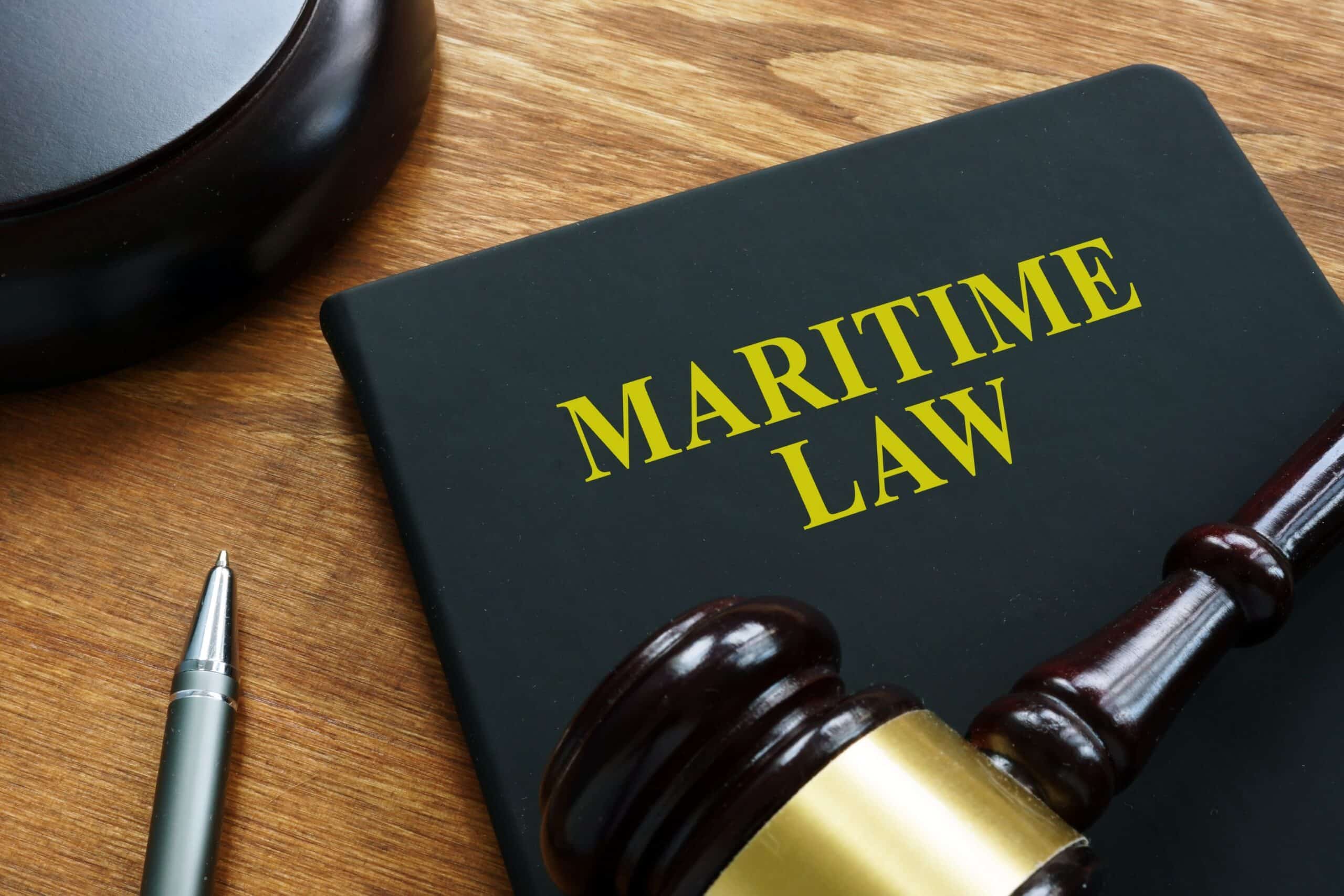
The Jones Act and maritime laws play a significant role in protecting injured cruise ship crew members. By providing them with legal remedies , these laws ensure crew members receive the compensation they deserve for their injuries and the hardships they endure while working at sea. The Jones Act’s definition of a seaman and its provisions for compensation give injured crew members the means to seek justice for their pain and suffering, lost wages, medical expenses, and other damages.
The General Maritime Law and the doctrine of unseaworthiness provide additional layers of protection, holding shipowners accountable for maintaining a safe working environment. Collectively, these laws incentivize cruise ship operators to prioritize safety, training, and equipment to prevent accidents and injuries from occurring in the first place.
As cruise ships continue to be a popular mode of travel and tourism, the rights and well-being of crew members must be protected. The Jones Act and maritime laws ensure that injured crew members have the legal recourse they need to recover physically, emotionally, and financially after such unfortunate incidents. Crew members must be aware of their rights and consult with experienced maritime attorneys to navigate the complex legal process and maximize their chances of obtaining fair compensation.
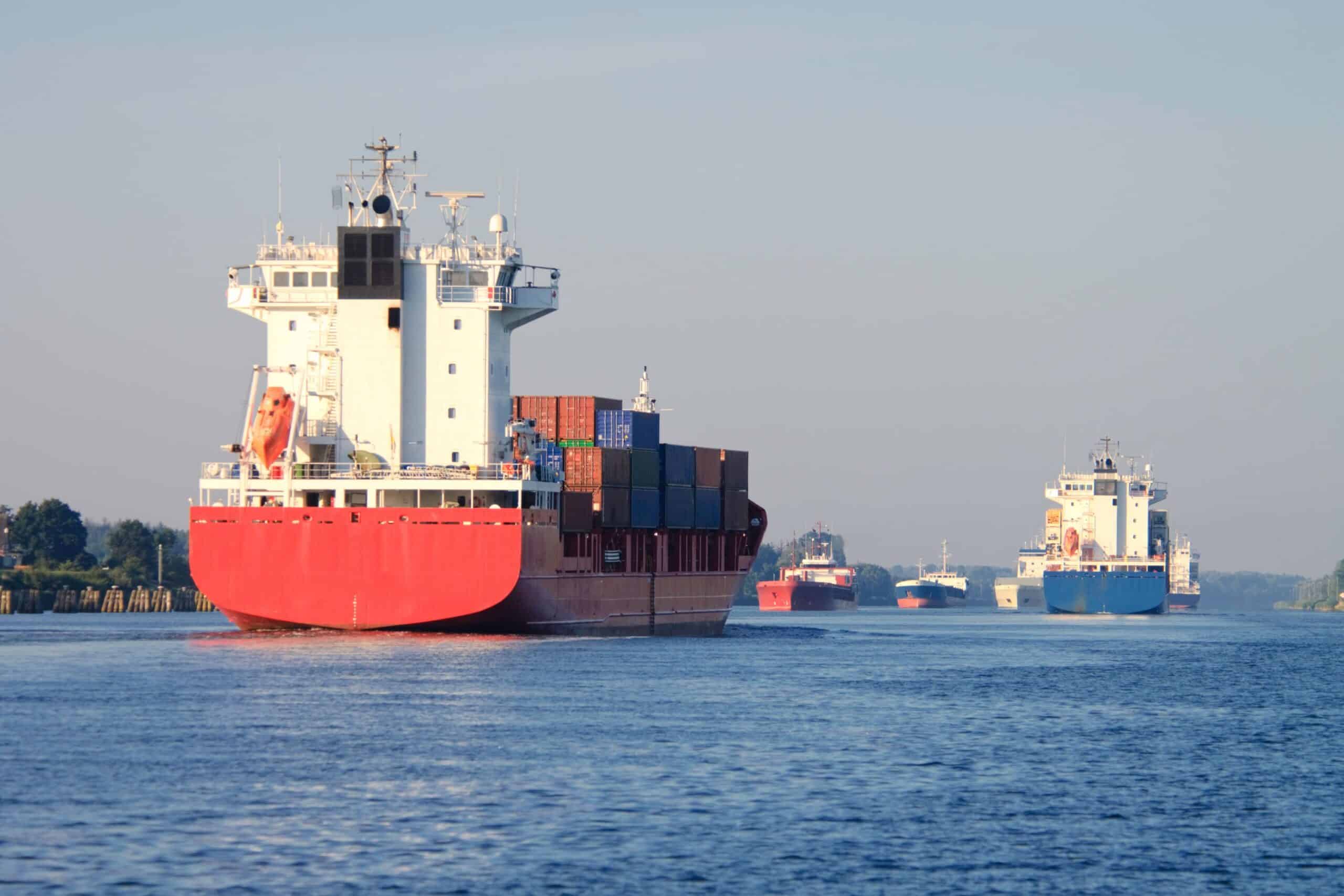
The Jones Act and maritime laws serve as a powerful shield, protecting injured cruise ship crew members and providing them with the necessary legal framework to seek justice. These laws establish the rights of seamen and hold shipowners accountable for their negligence or failure to maintain a safe working environment.
If you or someone you know is a cruise ship crew member injured while on duty, it is crucial to consult with an experienced maritime attorney specializing in personal injury claims . They can guide you through the legal process, help gather evidence, and fight for your rights to ensure you receive the compensation you deserve.
The Jones Act and maritime laws are designed to protect you. Your dedication and hard work should not go unnoticed, and in the event of an injury, you have the right to seek fair compensation for the physical, emotional, and financial toll it may have taken on your life.
About the Author:
Andrew Winston is a partner at the personal injury law firm Winston Law . For over 20 years, he has successfully represented countless people in all personal injury cases, focusing on child injury, legal malpractice, and premises liability. He has been recognized for excellence in representing injured clients by admission to the Million Dollar Advocates Forum and named one of America’s Top 100 High-Stakes Litigators . Mr. Winston is AV Preeminent Rated by the Martindale-Hubbell Law Directory , enjoys a 10.0 rating by AVVO as a Top Personal Injury Attorney, and has been selected as a Florida “SuperLawyer” from 2011-2022– an honor reserved for the top 5% of lawyers in the state – was voted to Florida Trend’s ”Legal Elite,” recognized by Expertise as one of the 20 Best Fort Lauderdale personal injury attorneys , named one of the Top 100 Lawyers in the Miami area for 2015-2022, and one of the Top 100 Lawyers in Florida for 2015-2017 and 2019-2022.
954-560-4116 South Florida
- Describe your case
Latest Posts Popular Posts
Should you go on an inaugural cruise.
by: Andrew Winston
There’s a certain thrill in being amongst the first few to enjoy a new experience, so it’s no surprise that many vacationers jump at the opportunity to be on a new cruise
Comparing Cruise Ship and Airplane Travel
Oftentimes, planning for a vacation can be nearly as fun as the vacation itself. The possibilities are numerous—you can choose from a seemingly infinite number
Everything You Should Know about Food Poisoning on Cruise Ships
You embark on a cruise with high hopes of an adventure and time to unwind and reconnect with loved ones. Not to mention, the investment likely wasn’t cheap.
Can You Be Arrested on a Cruise Ship?
Cruises are getaways. You can sail to different parts of the world and explore new areas. However, cruise ships are not places where the law ceases to exist. Crimes
Sailing on Troubled Waters: The Dirty Truths Cruise Liners Don’t Want You to Know
Has recent news about a cruise ship catching fire in the middle of the ocean or having to limp back to shore after a mechanical failure shocked you and completely
Know Your Rights as a Cruise Ship Crew Member
Working on a cruise ship sounds glamorous in theory—you get to travel the world on a luxurious ocean liner, visiting exotic destinations that you might not otherwise
Know What Flag Your Cruise Sails Under
If you embark and disembark on a cruise ship in Miami—or anywhere else in the United States—it makes sense that you might think that the ship is an American vessel.
How Common Are Cruise Ship Fires?
It might appear unbelievable that fires are a problem for vessels surrounded by water from all sides, yet several incidences of boiler room fires on cruise ships
5 Cruise Ship Disasters You May Not Have Heard About
Some of the biggest cruise ship accidents in history have, unsurprisingly, received a lot of media attention. You’d be hard-pressed to find someone in the US who
What Are the Most Dangerous Cruise Ports in the World?
Arriving in town on a cruise ship isn’t exactly a quiet way to go somewhere. These enormous floating cities sail right into the port, and every local knows that soon
10 Tips to Stay Safe and Healthy on Your Cruise
With all the recent reports of Norovirus outbreaks, slip and fall accidents, shore excursion injuries, and even passengers going overboard, it’s understandable
Worst Cruise Lines for Norovirus in 2017
Recently, hundreds of passengers on a Royal Caribbean cruise ship were struck with norovirus, which causes gastrointestinal upset that can quickly spoil a vacation.
Avoiding Thefts on Your Cruise
If you’re planning to go on a cruise soon, you may be tempted to pack your favorite necklace or that new watch that you just got as a gift—but you should also think about
Man Overboard Calls into Question Cruise Ship Rescue Practices
A man who went missing from the cruise ship Bahamas Celebration on April 27th has still not been recovered, and search efforts have been suspended.
10 Dangerous Mistakes Made By Cruise Passengers
Soothed by the gentle crash of the ocean, the warm rays of the sun, and the promise of a tropical destination, its easy for passengers on a cruise to forget their worries.
Carnival’s Crown Princess Docks with Norovirus – Again
Anyone who has been paying attention to this blog knows that there are many risks associated with going on a cruise – from typically minor issues, like getting sunburned,
Best Blogs to Read If You’re Considering a Cruise
Considering taking a cruise in the near future? Here are several of the top-rated cruise blogs that can help you find the best deals and educate you on the ways to get
Cruising, between Fun & Games and Injury & Disease: How Safe Are You at Sea?
Every year, around 20,000,000 people choose to spend their vacation on the board of a cruise ship (21,556,000 passengers reported in 2014, expected to increase
How Cruise Ship Slip and Fall Accident Liability Works
After an alleged slip and fall accident aboard a deck on the Oceania Cruises Marina , one woman has filed a case with the U. S. District Court for damages related to her
Cruise Ships Itineraries: Departures & Destinations For U.S. Ports
Every year, nearly 21 million people sign up for a chance to explore the world in a personal and meaningful way onboard a cruise ship. With elaborate water parks,
The Anxiety of Traveling: Get Over Cruise Fears and Enjoy Yourself
Many of us dream of getting away and relaxing on a cruise. Taking in the ocean views during the day, and watching as the sky turns into a sea of stars at night.
Does the Cruise Industry Have a Drinking Problem?
The expression “booze cruise” doesn’t just exist because it’s a convenient rhyme. From Champagne Brunches to happy hours to all-you-can-drink packages, there’s
New Bahamas Cruises – Old Ship
Avid cruisegoers know that the peak time to head to the Bahamas is from December to February. People travel there from colder climates everywhere to kiss the
Good Reasons to Take a Repositioning Cruise
Looking for a unique cruise that can potentially save you a bundle? In this post, we’ll tell you how repositioning cruises could work for you.
How to Plan for a Cruise
Cruise ships have received a lot of negative press in recent years, making many individuals and families reluctant to plan a cruise vacation. While cruise ship accidents
New Technologies Can Reduce Risks on Cruise Ships
Water transportation has come a long way since birch-bark canoes and rickety rafts. Modern-day cruise ships are outfitted with a dazzling array of amenities, special
5 FAQs about Traveling to Cuba on a Cruise
Until 2015, Cuba was off-limits to U.S. travelers, but since the embargo was lifted, things are finally opening up. If you’re curious about exploring the island
Important Facts about the Cruise Passenger Protection Act
If you are assaulted due to negligent security or injured due to lax safety and emergency protocols on a cruise ship, it seems obvious that the cruise line should be
The New Cruise Ships of 2015
Undoubtedly, one of the best parts of cruise vacations is the freedom to relax in the lap of cruise ship luxury. Cruise ship getaways are like vacations inside vacations—not
Mechanical Issue Derails Norwegian Cruise Ship, Strands Passengers
The Norwegian Pearl , a cruise ship in the Norwegian Cruise Line fleet, recently experienced a mechanical problem in the midst of a 13-night cruise.
Although the
‘Ebola Cruise’ Quarantine: What If An Outbreak Occurs?
Following the death of Thomas Eric Duncan, the first US Ebola patient, and the hospitalization of two nurses who had been treating Duncan, health care workers who
10 Tips for Safe and Fun Family Cruising
Colorful waterslides. Dancing cartoon characters. All-you-can-eat-pizza and ice-cream. What may sound like a description of kid’s wildest dream is actually
Your Guide to Get Compensation after Cruise Excursion Injuries
Hopping on a cruise is a fun way to buy a package deal that covers travel, accommodations, and activities in different countries around the world. One of the most fun
Boarding the ‘Fun Ships?’ Better Leave Your Medical Problems at Home
Vacationing in style. For some, that is synonym with spending hours tasting the wines and pastries at exquisite French restaurants, while taking long strolls
Cruise Ship Crew Injuries – What are Your Rights?
Wherever you work, you’re susceptible to injuries and accidents. Depending on the nature of the injury or accident – especially if it was caused by your employer’s
Where Injuries Happen on Cruises – and How to Avoid Them
With so many destination and ship options for all of your vacation needs, more and more people are opting to go on cruises. You have the best of both worlds – being on
7 Activities You Might Not Expect to Find on a Cruise
Don’t think that lounging by the pool or trying out all the ship restaurants are the only things to do on a cruise. There’s healthy competition in the cruise industry,
The 5 Best New Cruise Ships of 2018
Are you looking for the best cruise options for 2018?
“Best” is a subjective term, of course, so we’ve broken down this list into the five best cruises for 2018 by newest
Cruises to Cuba May Soon Be Legal, but Will They Be Safe?
While Cuba lays a mere 90 miles off the Florida coastline, it remains a mysterious far-off land for the majority of the state’s residents. Travel to Cuba has been
Behind the Sails: 5 Shocking Truths Cruise Lines Won’t Tell You
Does buying a cruise ticket still conjure images of a fantasy dream-like vacation, basking in the sun all day long, and sipping umbrella drinks? You might want to
What Does Virginia Tech Student’s Death Mean for Cruise Safety?
On March 7 th , 2015, Cameron Smook, a senior at Virginia Tech, lost his life after falling overboard on a Carnival cruise ship. The incident occurred just one day after
Halloween Cruises: Everything You Should Know
A Halloween cruise can provide extra fun for you and your family. We’ll cover all you need to know in this post, including the best Halloween cruises and what to expect.
Cruise Travel Checklist: What to Bring on Your First Cruise
The first time you book a cruise vacation, it can be tempting to go overboard and pack everything but the kitchen sink “just in case”—or to go in the opposite
What You Need to Know Before You Go on a Shore Excursion
Cruise ships have plenty of onboard activities to keep passengers entertained, but they also frequently offer shore excursions when they make port. Shore excursions
Tropical Storm Gonzalo Affecting Cruise Itineraries
If you’re going on a cruise to the Caribbean this October, you may be seeing some itinerary changes. That’s because Tropical Storm Gonzalo has swept into the region,
Relaunched Cruise Forward Website Offers Helpful Information
If you’re a frequent cruise traveler, you may have found that one of the biggest hassles of planning a cruise vacation can be the uncertainty. With all the jumbled
Top 20 US Cruise Ports for 2015 -Cruise Liners & Destinations
You plan to go on a cruise sometime in the next year. What’s the first thing you think about? Your destination, right? Do you want to relax on the beaches of the Bahamas
What Your Cruise Ship Injury Lawyer Can Do For You
Going through any type of accident can be a traumatic experience, but suffering injury on a cruise ship may be particularly devastating.
When you or a loved one is
Everything to Know About Travel Insurance for Your Next Cruise
Whether this is your first cruise or your 50 th , you’ve probably seen the checklists for preparing for a cruise: Dramamine, extra bathing suits, and so on.
New Cruise Ship Aims to Wow with Technology
To say that cruise lines haven’t been getting very good press over the past several years would be an incredible understatement. With everything from viral outbreaks
Who Can Be Held Accountable If You’re Assaulted on a Cruise
Most people sign up for a cruise to escape the pressures of daily life.
However, if you are assaulted while on a cruise, your peace of mind can be destroyed, and you may
7 Ways to Cruise This Summer on a Budget
Sitting on the deck watching the sun set into the ocean. Dining at a different location every single night – all without having to hop into a car. Relaxing in the pool
Cruise Workers’ Comp According to Maritime Law
Depending on how long you’ve worked in the cruise industry, you probably well know that working on the high seas can be just as dangerous as it is thrilling.
Unfortunately,
Things to Know Before Leaving on Your Cruise
Most people are familiar with the pre-vacation To Do’s—get someone to watch the pets, make sure you’ve packed all the essentials (cell phone, passport, tickets),
Cruise Lines Now Required to Disclose Crime Stats
For as long as cruise lines have been in operation, they have been allowed to keep their crime statistics private. This has always been one of the main drawbacks to
Hurt By a Cruise Doctor’s Negligence? You’re Not Alone
When you’re on a cruise, you probably don’t anticipate suffering an injury or illness that requires medical care. Yet when you need to see a doctor while cruising,
The Coolest, Most Advanced Attractions Available on Cruises
Looking for a totally unique experience the next time you take a cruise? In this post, we’re going to detail some of the most amazing, most technologically-advanced
Dangerous Ports You Should Avoid When Cruising
You’re ready to book the cruise of your dreams – but are you headed to a safe destination? Below we are going to cover some of the most dangerous ports in the world, including
Family Sues Carnival for Child’s Dental Injuries
Cruise ship injuries are rare, but certainly make an already pricy vacation ever more expensive. Fortunately, accidents that were caused by the cruise ship or its
Passengers May Sue Norwegian after Cruise Sails into “Bomb Cyclone”
Passengers experienced horrific conditions when a Norwegian cruise ship sailed right into the recent
‘’bomb cyclone” storm. In this post, we’ll tell their stories
5 of the Biggest Cruise Disasters – and How You Can Stay Safe
Cruises are a great option for a relaxing family vacation, often with all-inclusive packages and exciting on-shore excursions. That doesn’t mean that cruises
What Cruise Lines (and You) Should Do to Prevent Food Poisoning
Ask cruise passengers about the highlight of their trip and you’ll likely hear a lot of different answers, ranging from exciting shore excursions to luxurious spa
What to Avoid on Your Next Cruise
The good news about cruising is that tickets have been getting less expensive as cruise lines fight to stay competitive in the industry. The
Work on a Cruise? The Many Different Ways You Can Be Injured
We tend to see two different images of cruise ships and cruise vacations.
One of these is the luxury and fun they can provide. Couples canoodling by the railing of a
Everything You Should Know about Virgin’s First Cruise Ship
Have you ever dreamed of a kid-free cruise vacation?
We know you love your children, but what couple doesn’t want to get away and enjoy adult-only time? Well, Virgin
4 Common Cruise Ship Injuries
Taking a cruise can be a wonderful adventure that also allows you to kick back and relax. You get the excitement of traveling to new places and seeing new things with
First Time on a Cruise Ship? What Not to Do on Your Trip
If you’ve never been on a cruise before, you may not really know what to expect—other than what you’ve seen in advertisements and heard from friends. You probably
Brawls, Unsanitary Conditions and Other Cruise Problems
A cruise is supposed to be a relaxing experience without hassle. Unfortunately, several recent news headlines have reported cruise ship problems that caused passengers
Sick at Sea? What to Expect When You See a Cruise Ship Doctor
Cruise ship vacations are relaxing and care-free…until someone gets sick or hurt. Doctors and nurses will be on board to help you recover, but your experience
Your Guide to Holiday Cruises
What are your plans for St. Patrick’s Day?
Even though St. Patrick’s Day isn’t the biggest holiday of the year, preparing for festivities (or avoiding streets with
You Can Get Up to $900 in Class Action Lawsuit against Cruise SPAM
Telemarketers are the bane of many people’s existence.
They call at inopportune times, sometimes multiple times in a week – or even a day. They don’t leave voicemail
Why It’s Important to Research before You Set Sail
Booking and setting sail on a cruise vacation should always be fun and exciting. While the cruise injury attorneys at Lawlor Winston will always be there to defend
Best Cruises for the Holiday Season
There may be snow and mistletoe if you’re home for the winter holidays, but there are also hectic dinners, crowded shopping malls, and chaotic
What to Expect If Your Cruise Ship Experiences a Fire Onboard
If you are taking a cruise this year, the last thing you’re probably worried about is suffering injury in a fire. After all, you’ll be surrounded by water!
Staying Healthy: A Cruise Passengers Biggest Worry – How to Do It
A new poll that surveyed about 1,440 U.S. cruises found that cruise passengers are most concerned about illnesses and injuries just before or during the trip.
Best Summer Cruise Destinations
Summer is coming up, and many of us are planning summer vacations. Whether you prefer white sand beaches or dramatic icebergs, the perfect summer cruise destination
Should You Purchase Travel Insurance for Your Cruise?
If you start asking people who have been on cruises whether or not it’s a good idea to purchase travel insurance, you’ll most likely encounter two lines of thought.
Cruise Injury? Potential Incidents You Can Seek Compensation For
Earlier this year, a Floridian woman filed a lawsuit against Carnival Cruise Lines for an incident that led to serious injuries in the Bahamas. She was on a Carnival
When Are Cruise Lines Liable for Crime On Shore?
The appeal of going on a cruise, for many passengers, is the opportunity to travel to a number of different ports and visit parts of the world that they might not otherwise
What Will It Take for Cruise Lines to Employ Lifeguards?
Drowning deaths occur every year on major cruise lines, yet almost none of those cruise lines bother to employ lifeguards. Now, the parents of a Central Florida boy
After Devastating Hurricanes in the Caribbean, Is Your Port Still Open?
A cruise vacation is usually a time for relaxation, but with hurricane season in full swing, it’s understandable if you’re feeling a bit anxious and stressed instead.
Why So Many People Like Taking Cruise Vacations
Planning your next vacation? Many people love taking cruises for vacations. We’ll detail the top reasons people prefer cruises to other vacations.
$10 Million Lawsuit Causes Royal Caribbean to Close Ride
A Washington man on a Royal Caribbean cruise recently suffered a fractured pelvis after the bungee cord on the Sky Pad trampoline bungee ride broke 20 feet above deck,
The Biggest Differences between River Cruises and Ocean Cruises
Picture a cruise ship. Whether this ship is going to the Bahamas, Europe, or Alaska, the cruise ship you are picturing is most likely on the ocean. Because that’s our
Ruling Holds Cruises Accountable for Medical Malpractice
For far too long, cruise lines have been able to dodge their medical responsibilities. With all the technicalities surrounding maritime law and the different legal
What Injured Cruise Ship Crew Members Need to Know
While injuries at sea may be most commonly associated with higher-risk industries like offshore drilling and deep-sea fishing, injuries can occur on any type of
Things Everyone Should Know before Embarking on a Cruise
Is 2018 your year to start cruising?
If you’ve never been on a cruise before, these helpful tips will keep you in the know and help you understand how to protect yourself
Never Do These Things While on a Cruise Vacation
Cruising is one of the most enjoyable and luxurious ways to travel. However, if you’re a cruising novice, it’s prudent to do your research and make sure you’re well-prepared.
Still Looking for a Last-Minute Holiday Cruise?
The holiday season is touted as the most wonderful time of year, but is it really wonderful to spend all day cooking a holiday meal so your entire family can cram around
Going on a Cruise in 2017? Keep These Safety Tips in Mind
For many, this past New Year’s Eve was a way of saying, “good riddance” to 2016 and hello to a (hopefully) better year. If part of your New Year involves a cruise vacation,
Thinking about a Fall Cruise? Here’s Where and How to Cruise
Fall cruises are a great opportunity for a family getaway before all the chaos of the holiday season begins. Fall cruises are also frequently less expensive than
The Anti-Slip Cruise Accident: When Safety Measures Backfire
Two years ago, a New York senior filed a claim against Spirit Cruises. He alleged that the anti-skid coating applied to the top deck during a million-dollar renovation
Cruising during Hurricane Season: What You Should Know
Hurricane season runs from June 1st through November 30th, and—since that’s also prime vacation season for many people—major cruise lines continue offering vacations
What Types of Claims Fall Under Maritime Law?
Many people are often surprised to learn that injuries, crimes, and wrongful deaths that occur on cruise ships are not governed by the traditional laws of the US legal
Try Out One of These Amazing New Cruise Ships This Summer
Temperatures are rising, and the idea of a cruise vacation sounds more relaxing than ever. Even if you head out on a cruise every year, you still have many options for
Injured on a Cruise Ship – Be Careful What You Say
If you are injured on a cruise ship, it’s important to watch what you say, because the words you use can be the difference between whether you receive compensation
New Year’s Resolutions Cruise Lines Should Make
The cruise industry has come a long way over the last few years, making technological advances, improving safety measures, and introducing new amenities. But—like
World’s Longest Cruises – Would You Go?
Have you dreamed of traveling the world in a leisurely manner, stopping off in ports all around the globe? If so, a world cruise may be the ultimate vacation choice
Types of Shore Excursion Accidents to Watch Out For
Swimming with dolphins. Paragliding. Snorkeling. Ziplining.
When you see these types of offerings associated with your cruise, they probably seem exciting and
Top Cruise Destinations for 2017
There’s nothing quite like seeing the world via a luxurious cruise ship. With all of the various modern amenities offered by most big cruise lines, the ships can often
Who Is Liable After A Cruise Ship Injury?
When people get hurt or sick while taking a cruise, they often chalk it up to bad luck or their own ineptitude. They wouldn’t have fallen if they’d been paying more attention.
Why You Need a Maritime Lawyer in Your Cruise Ship Accident Case
If you’re injured on a cruise, it may seem pretty obvious to you that the cruise line should be held responsible. Maybe you fell from a balcony because of a loose railing,
Your Guide to Filing a Cruise Ship Injury Claim
Injuries on any vacation can be a bummer, but cruise ship injuries can be especially dangerous. You’re stuck on a ship, and often cruise ship doctors are able to do
Spring Break Cruises: What to Look For, What to Know
The holidays have passed, and you’re probably already looking forward to warmer weather and a new adventure. Many people wait until summer, but spring is actually
Destination Spotlight: How to Do Your Caribbean Cruise Right
If you’re taking a Caribbean cruise this year, here are the top tips to make your trip exciting, fun, and memorable. We’ve organized the tips by location for your convenience.
What’s Next for the Cruise Worker Found Alive after 22 Hours at Sea?
A cruise ship worker from the Norwegian Getaway cruise ship recently fell overboard in the Gulf of Mexico. US Coast Guard ships attempted to locate the man for many
2019 Is Coming with Some Fantastic New Cruise Ships
2018 was a pretty great year for cruising, but all signs indicate that 2019 might be an even bigger year for cruise ships. Not only will several new ships be entering
Hurricane Season Is Starting – Is It Safe to Cruise?
Ah, Summer cruising. A great time to get away with the family. To lay out on deck and soak in the sun. To run into… hurricanes?
That’s right. If you’re considering taking
Carnival Fails Sanitation Inspection – Watch for These Health Problems
During its latest health inspection from the Centers for Disease Control and Prevention (CDC), the Carnival Fantasy earned a failing grade. The Carnival Cruise
Injured Working on a Cruise: What Rights Do You Have?
If you are injured while working on a cruise ship, your rights are protected by law. Keep reading to learn what the laws cover and how they protect you.
What Cruise Ship Crews Do to Fight Norovirus
Norovirus – better known as the “cruise ship virus” – is an extremely contagious stomach bug. You can get it not only directly from an infected person, but also from
Things to Know When Planning a Holiday Cruise
Holiday cruises are a fun way to celebrate in the winter, but it’s helpful to prepare a bit differently from a regular cruise.
In this post, we’ll give you money-saving
A Guide to Cruise Ship Safety in 2024
In the ever-evolving world of travel, cruise ships continue to be a popular choice for vacationers seeking both luxury and adventure. As we usher in 2024, the cruise
Cruising to Venice? What You Need to Know About the New Rules
Venice is a wildly popular cruise destination, and few things are as romantic and exciting as you think an Italian cruise would be. However, cruise ships and the throngs
Ways to Get the Most Culture Out of Your Cruise Vacation
When you imagine a cruise, what comes to mind?
The open sea, obviously. Relaxing on a white sand beach somewhere? Tanning on the deck of the ship while you sip a martini?
The Relationship between Cruises and Sexual Assault
The last thing anyone thinks about when booking a cruise is whether they could fall victim to sexual assault.
However, as one Miami attorney explains, “a cruise ship
Facing Furlough But Your Cruise Coworkers Aren’t?
The travel industry has been hit hard by the COVID-19 epidemic. One of the worst-hit sectors has been the cruise industry, which has had to entirely suspend operations
Should You Take a Fall Foliage Cruise?
If you thought cruises were only for soaking up rays by the pool and visiting tropical destinations, think again. Summer may be drawing to a close, but the cruise season
Get the Feel of a Bespoke Cruise (without Paying for One)
At a time when cruisers are yearning for authentic, mind-blowing cruising experiences, the hotel giant Ritz-Carlton recently unveiled a cruise concept that will
The World’s Most Popular Cruise Destinations of 2019
You already know that it’s about time for a cruise. School’s out, you’ve worked hard so far in 2019, and you’re long overdue for a tan. Now all you have to do is figure
Do You Know What to Do If Injured on a Holiday Cruise Excursion?
Shore excursions are often the highlight of a cruise, and ports of call offer a chance to disembark, sightsee, and take in the local culture. Shore excursions can
Cruise Lines: The Surprise Heroes of the Aftermath of Dorian
Hurricane Dorian was the latest Category 5 storm to hit the East Coast. While Floridians braced themselves for a big hit, the real victims of the storm were the people
Check Your Cruise Line’s Cancellation Policy Updates Here
What if you booked a $32,000 cruise before coronavirus hit and the cruise line refused to let you cancel it? That’s exactly what’s happening to one Hawaiian family.
Grandpa Charged in Toddler’s Death – Should It Have Been Cruise Line?
In a tragic incident on July 7 th , 2019, an 18-month-old fell to her death from a window 11 stories up on a Royal Caribbean International cruise ship. According to reports,
Want to Cancel Your Cruise to China After Coronavirus? Might Be Impossible
Coronavirus has been all over the news recently. It’s a highly contagious illness responsible for hundreds of deaths throughout China so far. For people planning
It’s Your First Cruise Ever — What You Should Know
You will never forget your first cruise — the anticipation, the trepidation, the excitement. Today, cruising offers an ultimate getaway packed with adventure,
Kids at Sea: What To Know About Onboard Childcare
Cruises are often family affairs, with parents bringing their children along so everyone can seek out adventure in far-off places across the ocean. But just because
Some of the Best World Cruises Available in 2020
Cruises are a wonderful and enriching experience. There is something so timeless and thrilling about hopping on board for an adventure.
You can explore a new part
Tips for a Better Trip When You Cruise Over Spring Break
Cyber Monday has come and gone, but you can still find great deals online. Cruise lines have just started to slash prices on trips that leave over Spring Break. When
Cruise Struck By Lightning Shines a Light on Weather Hazards
People love cruising. What many forget, though, are the natural dangers present on the open seas, dangers that when they make themselves apparent can be quite frightening.
Will Newlywed Who Fell from Carnival Balcony Sue?
Not often do we hear of a cruise ship accident that isn’t immediately followed by angry laments and threats of a lawsuit.
It seems a recent Carnival Cruise incident
Taking a Family Cruise? What You Need To Know
You’ve been on cruises in the past, but now it’s time to bring the kids along. If you are used to going on a cruise with friends or with your partner, know that family cruises
Why You Should Consider a Winter Cruise – And Where to Go
Summer is winding down and the temperatures are finally starting to drop. For many families, this new season means putting their noses to the grindstone. No more
What Carnival’s 6 Injured Passengers Did Right After Cruise Collision
Most of us have a general idea about how to stay safe once you’ve set sail. Not to mention, every cruise line has a quick tutorial for all passengers before the ship even
Officials Admit Cruise Ship Quarantine Mishandlings with Coronavirus
Imagine being on a cruise, sailing along, and then the worst happens – the coronavirus breaks out on board and you’re forced to stay quarantined on the ship.
Cruise Lines Inch Back Sail Suspensions — So Who’s Cruising?
If you are planning to take a cruise in fall 2020, then you may be out of luck. Many cruise lines are pushing back their sailings into next year, 2021. Still, a few are
Does Your Travel Insurance Have Med-Evac Coverage?
Due to the Coronavirus outbreak, 13 American cruise ship passengers were evacuated from Japan back to the U.S. this month. The passengers were quarantined for two
Signs You Have a Maritime Workplace Harassment Case
Harassment can happen to anyone and in any place. To find examples, you don’t need to look any further than social media.
Celebrity Cruise captain Kate McCue runs
CDC Issues Another Extension on Its No Sail Order
The cruise industry has been at a standstill for the last six months due to COVID-19. The Centers for Disease Control and Prevention recently extended its no sail
Carnival Cruise Line Set to Sell — Is That Where Your Refund Is?
The coronavirus pandemic’s blow was felt across many different industries, but the impact was particularly crippling to the cruise industry.
Even after surviving
Cruises Are Ready to Set Sail Again… Or Are They?
After a long, lonely spring season on the water, one cruise line is getting ready to set sail on the high seas. Genting Cruise Lines, an Asia-based cruise company,
COVID-19 Isn’t the Only Virus you Could Catch on a Cruise Ship
Need to take a vacation from the news? You’re not alone. Constant talk of COVID-19 is upsetting and exhausting.
You know how important it is to wear a mask, wash your
A Happy(-ish) Ending to a FL Boat Operator’s Hurricane Claim
Having a boat in Florida is a wonderful thing. After all, who doesn’t love spending a day out on the waves and enjoying all the shorelines Florida has to offer?
Don’t Let Cabin Fever (and Low Cruise Rates) Cloud Your Judgement
Countries around the world have begun to open back up after closures due to the COVID-19 pandemic, and the United States is following suit.
For thousands of Americans,
Changes Cruise Lines Need to Make to Bring People Back
Over the last few months, you’ve likely heard numerous stories about ruined vacations due to COVID-19. One of the hardest-hit industries is the cruise industry.
Is Small Ship Cruising a Good Alternative This Season?
The cruise industry has been shaken by the impact of COVID-19. Still, cruise lines are going ahead with plans to resume cruises as soon as they can, with a few changes
Future Cruising May Practically Require a Maritime Law Education
The coronavirus pandemic has been notoriously hard on the cruise ship industry. To help moderate losses, many cruise lines are already pre-booking trips for the
Can Cruise Lines Fire Employees Who Refuse to Get Vaccinated?
Cruising is on its way back. Well, with restrictions, anyway.
Some cruise lines plan to set sail from certain ports in the summer of 2021. However, due to COVID-19,
Could Fewer Sailings During a Hurricane Mean Safer Harbor?
Cruises are supposed to be fun, relaxed, safe vacations for people of all ages. Cruise ships, in particular, are designed for maximum safety, keeping their passengers
Back to Sea Cruises: Should I Buy a Trip Cancellation or CFAR Policy?
Many people will be ready to resume vacations in the coming months. But, based on inquiries into travel insurance over the past year, we have learned from the pandemic.
COVID-19 Class Action or Private Litigation — Which Lawsuit Is Best?
COVID-19 is impacting nearly every aspect of people’s lives these days, including how they navigate the law. Case in point: a couple has recently decided to sue a
Five Questions to Ask Yourself Before You Hire a Cruise Attorney
Choosing the right personal injury attorney, especially as it related to specific issues in the cruise industry, is a big deal. In fact, it can be the difference between
PortMiami Expansion Forges Ahead on Cruise Projects
It’s no secret that 2020 has been a challenging year for the hospitality industry, but there seem to be brighter times ahead. Case in point: The forging ahead of expansion
Choosing to Cruise Doesn’t Forfeit Your Rights to Health and Safety
Cruise lovers everywhere are rejoicing over the lifting of the Centers for Disease Control and Prevention’s (CDC) no sail order. Essentially, cruise lines are

Advantages of Booking a Smaller Cruise in a Post-COVID World
As we seemingly inch closer to a viable vaccine against COVID-19, confidence in cruising increases. What you may not know is that some hardy cruisers have already
Will It Be the Vaccine That Reopens the Cruise Industry Fully?
Everyone across the world has been dealing with the dangers of COVID-19 for a year, which makes the recent news of an effective vaccine very welcome.
The vaccine won’t
Spend Just 30 Percent of the Time on a FL Ship, You’re a Seaman
Maritime law is a highly specialized area of law that requires a vast knowledge of guidelines that not just any type of attorney knows about. A perfect example of this
What Does “Cruise Safety” Mean in a Post-COVID World?
The world has changed significantly since March 2020. In the past year, millions have been infected with COVID-19, and many deaths resulted. But with recent vaccinations,
Should Cruise Workers Hire an Attorney for Contract Review? Won’t Hurt!
For many people, working on a cruise ship looks like a dream. If it’s yours, then when it came true, you were likely jumping for joy and imagining all the things you’d
Thinking About Class Action Participation in FL? Consider This…
When one person is injured through the actions or negligence of another, they often must file a personal injury lawsuit in order to recoup their losses.
When one party,
Do Cruise Ships Have Overboard Sensors?
When going on a cruise, one of the worst things people can imagine happening is falling overboard. However, it does happen – probably more than people realize.
Robbed at Sea? How Cruise Lines Deal with Crime
If you think crime only happens on land, think again. Cruise ships are generally known for their upscale amenities and stunning vistas, but unfortunately, the cruise
Injured at Sea? A Lawsuit May be More Complicated Than You Think
Millions of Americans go on cruises each year. Reasonably, accidents can happen on cruise ships just like anywhere else. However, not many people realize that the
If a Fun Excursion Goes Sour, Your Cruise Line Can Be Held Responsible
Part of the fun of cruise vacations is the opportunity to explore ports around the world. Cruise lines promote these options at different ports of call to help their
Cruise Lines Eager to Sell Tickets Again—But They Won’t Refund
After all that people went through in 2020, 2021 is shaping up to be a very kind type of year. One of the ways it’s going to be different? Travel. That’s right – travel
What You Should Know About Cruise Ship Law
It’s important to remember that there are plenty of dangerous, extreme activities available on cruise ships and on the
Can You Sue a Cruise Line for Getting Norovirus?
Over the last two years, COVID-19 has been the leading concern for cruising. That’s obviously for good reason, but it’s important to remember if you choose to cruise,
Who’s Sailing This Summer and How Will It Work?
If you’re someone who loves cruises, this past year (and change) has likely felt torturous. For the past 15 months, cruises have essentially been cancelled —
What Do Legal Battles Over Vaccination Mean for Cruising in Florida?
Cruise ships are ready to be back – but the state of Florida wants to have a say in how that happens, specifically when it comes to COVID-19 vaccination.
According to
What Cruise Lines Don’t Tell You About Cruise Ship Safety
Cruising has started again, and many people can’t wait to stretch out their sea legs! While most are focusing on the safety of cruising amidst the COVID-19 pandemic,
Are Cruise Ships Equipped For Medical Emergencies?
Dealing with a medical emergency probably isn’t the first thing you think about when planning a cruise vacation. You’re focused on the destination. The sights and
Cruises Are Starting Again — Do You Need COVID Travel Insurance?
Cruising is starting to come back! While this is great news for people who work in the cruise industry and folks who enjoy cruising, the landscape of cruising has changed
Cruise Safety: Embarking On Your First Post-COVID Cruise
As the number of vaccinated Americans continues to rise, travel restrictions are relaxed, and cruises are ready to set sail on the ocean blue. Cruise lines have been
Florida’s Governor Wins Against CDC: What That Really Means
It’s not news that the governor of Florida has been at odds with the CDC over their conditional sail order. What is new: something that recently happened regarding
Planning Your First Cruise? Here’s What Not to Do
For those who are going on a cruise for the first time, planning can feel overwhelming. There are simply things a first-time cruiser won’t know. And that’s okay. But
Does My Kid Need to Be Vaccinated to Go on a Cruise?
Many people are ecstatic that cruising is back. However, just because cruising has resumed doesn’t mean you should toss all your worries about COVID.
Conditional Sail Order Extended Despite Huge Drop in COVID Cases
COVID has been in the headlines for nearly two years. It has impacted the lives of everyone during that time. From work to leisure, COVID remains a concern for many,
Common Shore Excursion Accidents to Watch Out For
One of the most exciting things about cruising is exploring ports all over the world. Cruise lines promote shore excursions for guests to go on at all ports of call,
Avoid These Risks On Your Next Cruise
Many people love cruising. For every person with a lot of experience onboard these massive cities on the sea, there’s someone who is brand new to the world of cruising.
Wrongful Death at Sea: What You Can Do
Even amidst the COVID-19 pandemic, cruising remains popular. Sure, there may be more hoops to jump through in order to sail now, but, for many people, it’s worth it
Which Cruise Lines Are Said to Be the Best in 2022?
When you think about spending money on a cruise, you likely think along the lines of “wanting the best”. Cruise lines, just like everything else, come in a lot of different
The Dangers of Medical Malpractice on Florida Cruise Ships
Cruise ships are often places of joy – places where families do fun activities together and enjoy a vacation away from the hustle and bustle of everyday life.
Cruise Line Sexual Assault: What You Need to Know
A cruise is supposed to be an exciting and relaxing vacation – a chance to get away from the everyday worries of life, enjoy new places, and meet new people.
Will Cruise Be Held Liable for Woman’s Fall From Balcony?
Vacations aboard cruise ships are supposed to be fun, secure, and safe, but they don’t always work out that way. What was supposed to be a relaxing escape can quickly
Cruise Ship Fires: What You Should Know
In the middle of a large body of water like an ocean, the thought of a fire can seem absurd. But fires can and do happen on cruise ships, so it’s important to be prepared.
Cruise ships have become synonymous with luxury and leisure, offering passengers a dream vacation experience. However, behind the scenes, a dedicated crew works
What Rights Do Cruise Ship Crew Members Have?
For some people, working on a cruise ship is a dream come true. They can travel the world and be at the center of the action out at sea.
But there are real dangers to working
Cruise Personal Injury: How Long Do You Have to File a Claim?
Cruising is big business. People just love to cruise, as evidenced by how much more popular cruising is now than it was just 15 years ago.
In the last decade, the number
Don’t Cruise Without Knowing These Facts
Many people love to go on a cruise, but they don’t realize all the industry regulations that work to make your cruise safe and secure. You’ve probably heard stories
Death on a Cruise: When Is It Wrongful?
It seems as if it’s frequent to turn on the news or pick up a newspaper and find a story about someone who has died on a cruise ship. Accidents happen, even on vacation,
Are There Reasons Not to Go on a Cruise?
Cruises, just like any other vacation, have their list of pros and cons. Most people tend to focus on the positive things about a vacation they’re planning, but only
How to Ensure Your Shore Excursions are Safe and Fun
A great cruise wouldn’t be complete without a memorable shore excursion. However, sometimes those shore excursions can be memorable for all the wrong reasons –
Going Overboard: What Happens When A Passenger Falls
When you go on a cruise, you’re supposed to have a fun and relaxing time, making memories with friends and family. The last thing anyone expects is for an accident or
What Liability Does a Cruise Line Have for Serving Alcohol?
Cruises are meant to be fun. The things that attract people to take a cruise are the prospects of all the amazing food, exciting shows, exotic destinations – and alcohol.
Legal Implications of Sexual Assault and Harassment on a Cruise Ship
Cruise ships allow passengers to relax, unwind, and enjoy a vacation on the high seas. However, like in any other environment, sexual assault and harassment can
Don’t Skimp on CFAR Insurance!
If there’s one thing you can take away from the COVID-19 pandemic when it comes to cruising, it’s that you should always say yes to “cancel for any reason” insurance!
The Most Popular Cruise Destinations of 2022
Now that the world seems to finally be opening up again from the COVID-19 pandemic, a cruise is at the top of the list for many people. There are a lot of options, and if
What Are Your Rights As a Cruise Ship Employee?
There are hundreds of cruise ships on oceans and rivers across the world, and those ships are manned by thousands of crew who make the journey possible. Those who work
What Is Needed to Prove a Jones Act Case?
When most people get hurt on the job, they have worker’s compensation to help them. It can help pay for medical bills and cover the wages they lose out on as they recover.
Cruise Ship Deck Chair Hoarders: How To Fight Back
You only get a few weeks each year to kick back and relax. When you’re on a cruise, you want that kicking back and relaxing to be on a deck lounger so you can soak up some
Missing Persons on a Cruise: What Now?
Can you imagine getting on a cruise ship but never leaving it? Or being notified a loved one has gone missing from a cruise? These scenarios may seem unfathomable,
5 Ways You Can Be Kicked Off a Cruise Ship
Most people assume a cruise will be smooth sailing once they leave the port, but that’s not always the case. Cruise ships can kick you off the cruise once it is underway.
Understanding Norovirus Outbreaks on Cruise Ships: Legal Rights and Compensation
Cruise ships offer millions of people a unique and enjoyable vacation experience each year. However, like any other gathering of people in close quarters, cruise
Ocean Cruise and River Cruise: What’s the Difference?
You may think that being on a boat for vacation is the same no matter where you do it, but there’s more to it than simply the vessel you’re on. River cruising has
Deaths on Antarctic Cruises Lead to Investigations
Antarctica is a destination that many people dream of visiting at least once in their lifetime. It’s an awe-inspiring place, filled with incredible landscapes,
The Impact of Maritime Law on Cruise Ship Accident Claims
Cruise ships have always been popular for vacationers looking to enjoy the sun, sea, and sand. However, accidents and incidents on board cruise ships can and do occur.
Cruise Ship Crew Member Injuries: Rights and Legal Remedies
Cruise ships offer passengers a luxurious and enjoyable experience on the high seas. From breathtaking ocean views to world-class entertainment and gourmet dining,
What Happens If You Get Sick or Injured on a Cruise?
Going on a cruise is a great way to relax, explore new places, and spend quality time with loved ones. However, just like any other vacation, unexpected events can
Beyond Buffets: Food Safety on Cruise Ships
When embarking on a cruise vacation, one of the many pleasures is the tantalizing array of culinary offerings available on board. From gourmet restaurants to sprawling
Liability of Cruise Lines for Crimes Committed on Their Ships
Traveling on a cruise ship can be a relaxing and enjoyable experience, but what happens when a crime is committed on board? Who is responsible for ensuring the safety
Going on a Holiday Cruise? What You Need to Know
It doesn’t take much to understand the appeal of a holiday cruise. Just think of it: Instead of cooking, cleaning, and hosting tons of family, you can have every whim
The Role of Surveillance Footage in Cruise Ship Crime Investigation
Cruise ships are a popular vacation destination for millions of people each year. While most passengers have an enjoyable and safe experience, crime incidents
Cruise vacations are popular for travelers seeking adventure, relaxation, and exploration. One of the highlights of a cruise is the opportunity to participate
Understanding Cruise Ship Medical Facilities and Health Precautions
Cruising offers a delightful combination of adventure, relaxation, and exploration, making it a popular choice for travelers seeking a memorable vacation. Understanding
Cruising with Caution: Navigating Reckless Behavior and Avoiding Jumping Overboard
Cruise ships, with their opulent amenities and sweeping ocean views, promise an idyllic escape from the everyday. Yet, amidst the allure and leisure, it’s
Shore excursions are an exciting part of many cruise vacations, offering unique experiences and adventures. However, accidents and injuries can occur during
Common Causes of Slip and Fall Accidents on Cruise Ships
Cruise vacations are a popular choice for travelers seeking relaxation, adventure, and exploration of exotic destinations. However, amidst the luxury and enjoyment
Liability Waivers: Do They Protect Cruises in Drowning Cases?
Cruises are a popular vacation choice for millions of people around the world, offering a unique combination of adventure, relaxation, and luxury. However, like
When Paradise Turns Perilous: Legal Recourse for Shore Excursion Accidents in Florida
Embarking on a cruise ship often promises a dreamy escape to paradise, where azure waters, warm sunshine, and exotic destinations beckon. However, even in these
What to Do After a Cruise Ship Crash in Florida
Cruise vacations are meant to be enjoyable and relaxing experiences, offering passengers a chance to unwind and explore exotic destinations. However, just like
From Ship to Shore: How Maritime Laws Impact Crew Member Injury Case
The vast expanse of the open sea, with its boundless horizon and endless possibilities, has long been a source of fascination and livelihood for many. Cruise ships
Navigating Legal Options for FL Cruise Ship Sexual Assault Survivors
Cruise vacations are a popular choice for relaxation and adventure, offering passengers the chance to explore the high seas while enjoying luxurious amenities.
Heat on the High Seas: Common Injuries from FL Cruise Ship Fires
Embarking on a cruise is often synonymous with luxury, relaxation, and unforgettable experiences. However, the idyllic setting can take a sudden turn when faced
Hidden Dangers at Sea: Sexual Assault Awareness on FL Cruise Ships
Cruising the open seas is often considered a dream vacation, offering a luxurious escape with breathtaking views and unparalleled experiences. However, beneath
Cruising in the Time of COVID-19: Passenger Rights
The COVID-19 pandemic has significantly impacted the travel industry, and the cruise ship industry is no exception. As cruise lines gradually resume operations,
Hidden Dangers of Cruise Ship Buffets
Cruise vacations are often synonymous with indulgent buffets, offering an array of delectable cuisines to tantalize passengers’ taste buds. However,
When Seasickness Turns Serious: Medical Negligence Claims on Cruise Ships
Cruises are often associated with relaxation, luxury, and adventure on the high seas. However, amidst the shimmering waters and endless buffets, there lies a potential
How Cruise Lines Handle Accident Claims and What You Need to Know
Cruises offer travelers the promise of relaxation, adventure, and unforgettable experiences. However, accidents and injuries can occur onboard cruise ships,
- Antarctic Cruises
- Bahama Cruises
- Boat Claims
- Burn Injuries
- Carnival Cruise Lines
- CFAR Insurance
- Child Accidents
- Claims Filing
- Class Action Lawsuits
- Comparative Negligence
- Coronavirus
- Crew Member Injuries
- Crime on Board
- Cruise Accidents
- Cruise Activities
- Cruise Assault
- Cruise Attorney
- Cruise Blogs
- Cruise Cancellations
- Cruise Crime
- Cruise Deaths
- Cruise Destinations
- Cruise Ideas
- Cruise Injuries
- Cruise Insurance
- Cruise Laws
- Cruise Liners
- Cruise Lines
- Cruise Passenger Protection Act
- Cruise Passengers
- Cruise Safety
- Cruise Ship Attractions
- Cruise Ship Disasters
- Cruise Ship Doctors
- Cruise Ship Employees
- Cruise Ship Injury Lawyer
- Cruise Ship Itineraries & Schedules
- Cruise Ship Ports
- Cruise Ship VS Airplane Travel
- Cruise Ships
- Cruise Ships Liability
- Cruises to Cuba
- Cruising News
- Cruising Tips & Tricks
- Deck Chair Hoarders
- Destination Spotlight
- Discrimination
- Do's and Don'ts
- Employees Rights
- European Cruises
- Fall Cruises
- Falling Overboard
- Family Cruises
- Far East Cruises
- First-Time Cruise
- Food Poisoning
- Health & Wellness
- Health Precautions
- Holiday Cruise
- Hurricane Relief Efforts
- Illness / Sickness
- Maritime Law
- Medical Facilities
- Medical Malpractice
- Medical Negligence
- Missing Persons
- New Cruise Ships
- Onboard Childcare
- Planning a Cruise
- Port Excursions
- Repositioning
- River Cruises
- Royal Caribbean
- Safe Cruising
- Seasickness
- Security Negligence
- Sexual Assault
- Sexual Harassment
- Shore Excursions
- Slip and Falls
- Small Ship Cruising
- Spring Break
- Telemarketing & SPAM
- Thefts on Cruises
- Themed Cruises
- Tips and Tricks
- Top 20 US Cruse Ports
- Top Cruise Ships
- Top US Ports
- Travel Anxiety
- Travel Insurance
- Uncategorized
- Vaccine Passport
- Vaccine Requirements
- Victims of Crime On Board
- Virgin Voyages
- Weather-Related Accidents
- Winter Cruises
- Work Furloughs
- Workers Comp
- Workplace Harassment
- World Cruises
- Wrongful Death at Sea
- February 2024
- January 2024
- December 2023
- November 2023
- October 2023
- September 2023
- August 2023
- February 2023
- January 2023
- December 2022
- November 2022
- October 2022
- September 2022
- August 2022

2924 Davie Road, #201 Fort Lauderdale, FL 33314
(954) 560-4116
(866) 306-9606
Cruise ship accidents
- COVID-19 Exposure
- Cruise Ship Crashes
- Slip and Fall Accidents
- Shore Excursion Accidents
- Unsanitary Conditions & Outbreaks
Cruise ships
- Holland America

Testimonials

Integrity First, Compassion, and Excellence in All We Do
America’s Leading Maritime Lawyers
Representing Passengers & Crew Injured on Ships Worldwide
CONTACT US We Reply Within 24 Hours Or Less
- Name * First Last
- I would like to receive news from LM&W, P.A. and participate in the firm’s marketing programs
- Comments This field is for validation purposes and should be left unchanged.
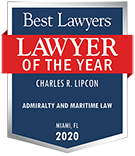
LM&W is Celebrating 50 Years!
LM&W was founded in 1971, making this our 50th year of service focused on maritime personal injury law. When Charles Lipcon founded the firm in 1971, he was a sole practitioner. Now in 2021 the firm has grown to include 16 full time maritime attorneys, making us the largest and most experienced maritime firm in the United States, if not the world. In our 50 years of service we have helped over 3,000 injured clients and victims of rapes and sexual assaults, winning for them over $300 million dollars and taken countless cases to trial. We take great pride in our achievements over the decades, but we are most proud of the results we have achieved for so many deserving clients. Our legacy over the past 50 years speaks for itself, and we are primed and ready to continue this legacy for the next 50 years! #50yearsofLMW
Lipcon, Margulies & Winkleman, P.A.
America’s leading maritime lawyers.

Lipcon, Margulies & Winkleman, P.A. is comprised of attorneys that are nationally-recognized industry leaders in the field of maritime and admiralty law. Our team of lawyers has over 200 years of combined experience, has successfully handled over 3,000 cases, and has recovered over 300 million dollars in damages for our clients! Our is a tradition of excellence and integrity that dates back to 1971.
By focusing exclusively on maritime and admiralty personal injury claims against cruise lines and other boat owners, our maritime injury attorneys have been able to provide aggressive legal representation to passengers and crew members that have been injured on ships all over the world. The fact is, all of our cruise ship accident lawyers have a diverse and unique legal skill set that they have employed to initiate and resolve a plethora of different types of maritime and admiralty claims across the United States. In fact, our attorneys have successfully represented a wide array of passengers and crew members who were injured due to accidents, assaults, or illnesses on cruise ships, tankers, motorboats, personal watercraft, and many other types of vessels.
Award Winning Attorneys
Moreover, we are the only plaintiffs maritime and cruise ship firm in the United States that has been named in the “Best Law Firms” by US News & World Report on a national level, and we are proud to announce that US News & World Report has named four of our attorneys as “ Best Lawyers .” It’s achievements such as these that have earned us the reputation as America’s leading maritime lawyers.
A Record of Success
Our willingness to take cases to trial and our proven track record of success has allowed our attorneys to gain a reputation as aggressive, results-oriented legal advocates in the legal community. This unwavering pursuit of justice has given our lawyers the ability to prevail against entities with significant resources at their disposal, so if you or a loved one have been injured or assaulted at sea, let us put our experience to work for you.

Lawyer of the Year : Charles R. Lipcon
Attorney Charles R. Lipcon has been named Lawyer of the Year in Admiralty & Maritime by US News & World Report for 2020 . This achievement culminates a long career of successes, honors and accolades as one of the preeminent maritime attorneys in the United States. An extremely experienced maritime lawyer, Mr. Lipcon is responsible for numerous landmark cases, has been featured on national news more than 50 times, and has written a top 30 travel book on Amazon – Unsafe on the High Seas.
Mr. Lipcon has also been named to Best Lawyers in America , his firm is named to Best Law Firms by US News & World Report , he is a SuperLawyer as well as a member of the Multi-Million Advocates Forum and the Million Dollar Advocates Forum.
Trust Your Case to Trial Attorneys Named to “Best Lawyers” in America

Charles R. Lipcon
Charles R. Lipcon is the firm’s founder and one of the preeminent maritime attorneys in the United States. Mr. Lipcon …

Jason R. Margulies
Jason R. Margulies is a board-certified admiralty and maritime lawyer, as well as a co-managing partner of Lipcon, Margulies & …

Michael A. Winkleman
Michael A. Winkleman is one of the nation’s top maritime lawyers. An active trial and appellate attorney, Mr. Winkleman is …

Jacqueline Garcell
Jacqueline Garcell is a senior partner and active trial attorney in maritime law for Lipcon, Margulies & Winkleman, P.A. She …
View More Attorneys
Practice Areas
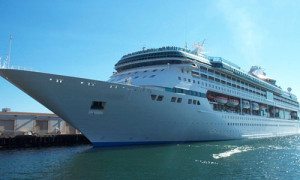
Maritime Lawyer
Our Award Winning Maritime Lawyers Handle Accidents, Injuries and Assaults at Sea Whether you are crew or a passenger …
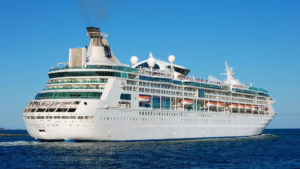
Cruise Ship Accidents
Nation’s Leading Cruise Ship Accident Lawyers Lipcon, Margulies & Winkleman, P.A., headquartered in Miami, FL, are the nation’s leading cruise …

Cruise Ship Rape Lawyers
Nation’s Leading Law Firm in Handling Cruise Ship Rape and Sexual Assault Cases There is a hidden epidemic going on …
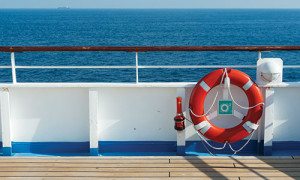
Seafarers Rights
Our Award Winning Seaman’s Rights Lawyers Will Fight for Your Rights Our seafarer’s rights attorneys at Lipcon, Margulies & Winkleman, …
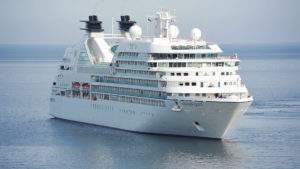
If you’re a seaman and you’ve suffered an on-the-job injury, it is critical that you immediately contact an experienced Jones …
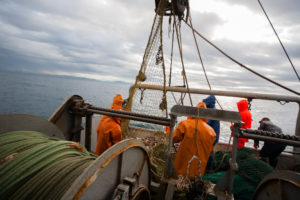
Commercial Fishing Accidents
Our Commercial Fishing Accident Law Firm Demands Liable Parties Pay for Their Negligence and Compensate Victims Fairly for Their Damages …
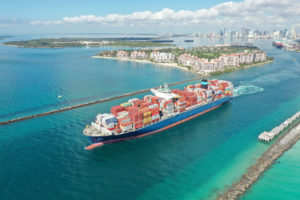
Barge Accident Lawyer
The Country’s Leading Maritime Accident Attorneys at Lipcon, Margulies & Winkleman, P.A. Help Barge Injury Survivors Fight for Fair Compensation …
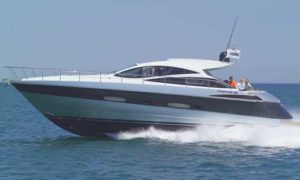
Boating Accidents
Our Award-Winning Boating Accident Attorneys Help Boat Accident Victims Fight for Maximum Compensation for Their Suffering Our Miami boating accident …
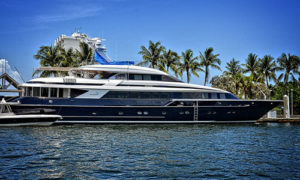
Yacht Accident Lawyers
Lipcon, Margulies & Winkleman, P.A. are the nation’s leading maritime lawyers, and we have earned this reputation for good reason. …
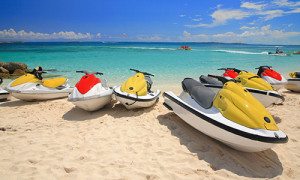
Jetski Accidents
Our Jet Ski Accident Lawyers Fight for Victim’s Rights and Total Financial Compensation The nation’s top-rated Jet Ski accident attorneys …
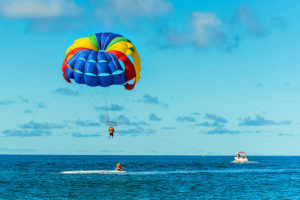
Parasailing Accidents
Lipcon, Margulies & Winkleman, P.A. is well-known throughout the country for our expertise in handling parasailing accident injuries. If you …
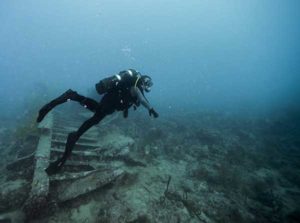
Scuba Diving Accidents
Our Leading Maritime and Admiralty Law Firm Represents Injury Victims to Recover Total Compensation After Scuba Diving and Snorkeling Accidents …

Swimming Pool Drowning Accidents
America’s Top-Rated Swimming Pool Drowning Accident Lawyers Have Multiple Office Locations Nationwide and Will Work Tirelessly to Recover Maximum Compensation …

Wrongful Death
Each year, millions of people around the world travel on ships for business and pleasure. With so much activity, inevitably, …

Class Action Lawsuits
Our firm has extensive experience in bringing class action lawsuits against maritime corporations as well as land-based companies. Class action …

Hotel, Resort & Vacation Accidents
The United States Premier Hotel, Resort & Vacation Accident Lawyers Help Injury Victims Nationwide The attorneys at Lipcon, Margulies & …

Hotel Rape and Sexual Assault Lawyers
Our Compassionate and Nationally Recognized Sexual Assault and Hotel Rape Lawyers Will Help You Hold Your Abuser Accountable and Recover …

Uber and Lyft Sexual Assault
Lipcon, Margulies & Winkleman, P.A. is one of the most sought-after Uber and Lyft sexual assault law firms in the …

Suing Bars For Over-Serving Patrons
Our Personal Injury Attorneys Ensure Dram Shop Laws Hold Bars Responsible For Over-Serving Patrons Our personal injury attorneys at Lipcon, …
See What Our Clients Have To Say
Cruise Ship Crew Member Injury

I’m from Indonesia. I am a crew member in a celebrity cruise ship. Everybody is satisfied with the work of …
Cruise Ship Passenger Injury

I worked with this law firm for a long period of time and I thought I was treated very personally. …

Hello, my name is Ardis Tiawan, I’m from Indonesia. I was a crew member in the cruise ship. First of …

Download Our Free Cruise Ship Injury App
Our legal team has developed a unique iPhone and Android-compatible application designed to help you when you need a maritime lawyer the most. Download our exclusive application and bring it with you on your smartphone or tablet on your next cruise vacation. Our app allows you to easily store and retain everything you might need to present to a lawyer:
Designed and launched exclusively by our firm, the app offers every feature you need if you are injured on your next cruise ship excursion — even a built-in flashlight if you are caught in the dark. Download it for free today.
Contact Lipcon, Margulies & Winkleman, P.A. today for a free, no-commitment consultation with a maritime lawyer. You can contact us by completing the submission form on our homepage or by calling our toll-free number at 1-877-233-1238.
- Capture and record data and photos about your accident or injuries
- Input and track injury-related expenses
- Find the closest medical facility
- Place Skype calls from your device if you are injured at sea
- Submit a free case evaluation form to our team
Hear What Our Clients Have To Say
I am extremely satisfied with the company, which is the best law firm in my own opinion. I would like to thank my case assignee, Silvia Grimaldi. She is a true professional and helped me a lot. I would recommend anyone in need to contact LM&W.

Slyvia was amazing and understanding, I see as a friend as well ..She explains everything to you bit by bit so that you can truly understand. A BIG THANK YOU TO THE TEAM HANDLING MY CASE.
I am satisfied with the company, especially the person that was signed to my case, Sylvia Grimaldi. They helped me a lot with the issues that I had, everything that I requested, they managed to help me with and make that possible and happen as soon as possible. She is very professional and worked very hard so my wishes and requests would become a reality. I can totally recommend this firm to anyone that needs some kind of help regarding a crew injury.
3 years ago I contacted Lipcon, Margulies & Winkleman, P.A. and they did amazing job for me. So many firms rejected me but they did not. In the start I was given one lawyer not to be named, because he is not with them anymore. He guided me as much as he could, but suddenly I was given another lawyer and when it comes to lawsuits this is your men to look for without any doubt. His name is Mr. Alex Perez. He won, what I would say, was an impossible case for me. So many times I wanted to give up but I believed in Mr Perez and his capabilities, he even gave me his personal phone number and said whatever you need and any time call me. What else is there to say about this great company and the fine people that work for them. I wish them all the best in future and many success.
When I became sick and company turned their back on me, they did not. When I tried to contact my company they did not answer but Mr Perez made them regret that.
To any seafarers out there with problem please contact Lipcon, Margulies & Winkleman, P.A. and look for Mr Alex Perez because this man won’t give up on you.
Cheers Alex, god bless
Best lawyers always answered my questions the best in maritime lawyers very polite and I will recommend them to anyone. Thank you
I worked with this legal firm after my injury on my cruise. My experience was that my case was expedited and I was more than satisfied to have this matter resolved in a timely manner by Mr. Weiner, Mr. Winkleman and Ms. Paz. They kept me well informed and the process from start to finish was easy on me. This team surpassed my expectations. I would recommend them to anyone searching for an attorney after any cruise issues.
Frequently Asked Questions
Where do i file my case.
Most cruise ship passenger cases have to be filed in Miami, Florida, as set out in the passenger ticket contract. This enforceable contractual provision is called a forum selection clause and with all cases against Carnival, Royal Caribbean, NCL and most other cruise lines, the clause calls for all cases to be filed in Miami, Florida (our primary base of operations). Other cruise lines such as Princess Cruises call for all cases to be filed in California, and Holland America Cruises cases call for all cases to be filed in Washington State. That is why is we have attorneys licensed in California and Washington on our team of 11 attorneys, so that we can handle any and all major cruise ship injury cases.
For a non cruise line injury case, most typically, the case has to be filed in the location of the incident or accident, unless there is a written agreement for the case to be filed elsewhere.
How long do I have to file?
With all cruise ship passenger cases, there is a strict one year time limit to file the case from the date of injury. There is also a 6 month notice provision which means the cruise line must have notice of the incident within 6 months of the incident. This is the main reason why it is so critical to immediately contact a maritime attorney after an incident.
With most other maritime related injury claims, there is a 3 year period of time to bring a case. This is known as a statute of limitation and it is a critical date to abide by otherwise the case can be thrown out of court.
How much do you charge?
As far as our fees, we work exclusively on a contingency fee basis. This means if there is no recovery, there is no fee. We are only paid when we win for you. There is no charge for any consultation so contact us immediately so we can clearly and simply explain your rights.
How much is my case worth?
The answer to this common question is always fact specific. But simply stated, the law generally affords you the right to be compensated for the harm done to you. There are two main ways to calculate this: economic and non economic damages. Economic damages are fairly easily calculated. For example, if you are hurt and you miss a year of work and you make $30,000 per year, then you have a lost wage loss of $30,000. Conversely, non economic damages, such as pain and suffering, are not as easy to calculate but ultimately it is a jury that decides what is a fair amount of money to compensate you for what you have suffered. Of course, many cases settle or resolve prior to trial and this is one of the primary reasons to hire an experienced maritime attorney to give you advice regarding a fair settlement amount.

Latest News

Lipcon Partners Distinguished with AV Preeminent Rating™ from Martindale-Hubbell®

Baltimore Bridge Collapse: Examining the Urgent Need For Legal Representation as the Vessel Owners Have Already Filed a Lawsuit to Limit Their Liability
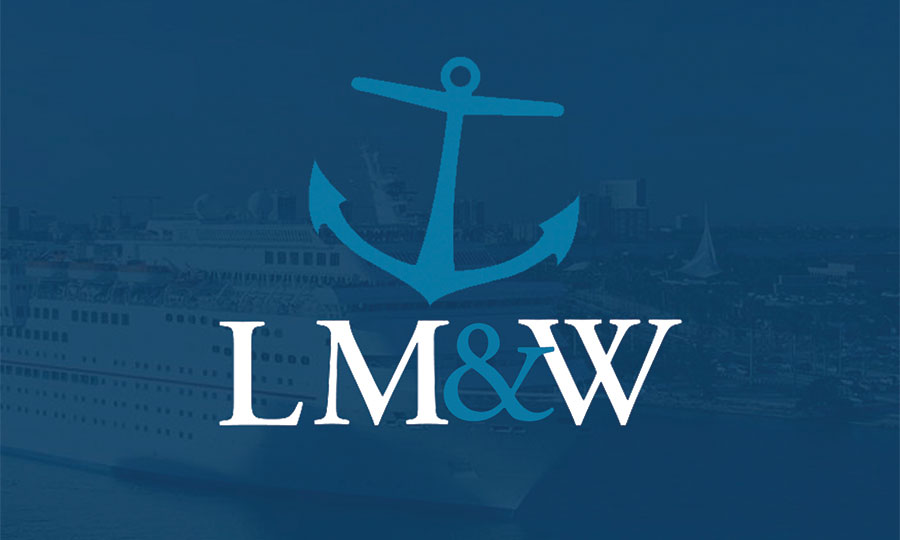
Cruises see a fair amount of overboard incidents: Are ships equipped?
View More News
- Email This field is for validation purposes and should be left unchanged.
Trending News
Related Practices & Jurisdictions
- Government Contracts, Maritime & Military Law
- Coronavirus News
- All International

Part I of this series outlined remedies available under the Jones Act and vessel owner liabilities . During part II of this series, we will summarize some remedies available under the general maritime law to third-party visitors and passengers. This could include individuals riding on a crew boat, contract hands on offshore drilling vessels, or passengers on crew boats.
What Remedies Are Available When an Employee or a Third Party Becomes Ill While on a Vessel?
As a recap, the crew of a vessel have several remedies when they become ill while performing their work. These remedies include a tort claim under the Jones Act and a general maritime law claim to provide a vessel that is reasonably fit and a safe place to work. The burden of proof under the Jones Act is slight, and the duty to provide a seaworthy vessel is absolute. Claims available to third parties are based on negligence and must be proved by the preponderance of the evidence. As previously stated, maritime workers, such as stevedores, ship repairmen, and harbor workers aboard vessels, are entitled to workers’ compensation benefits under the Longshore and Harbor Workers’ Compensation Act (LHWCA), 33 U.S.C. §901, et seq. , against their employers and under 33 U.S.C. §905(b) against vessel owners under certain circumstances. Passengers and invitees who become exposed to COVID-19 have remedies under the general maritime law not only for avoiding exposure, but also for proper medical care. It is important that vessel owners have proper protocols and resources in place to avoid liabilities.
General Maritime Law
Cruise ship passengers or visitors on other types of vessels may have claims under the general maritime law subject to contractual waivers for illness or injury. The potential claim is in tort for an action or inaction which causes injury. The standard of proof is by the preponderance of the evidence or substantial factor. Kermarec v. Compagnie Generale Transatlantique, 79 S.Ct. 406 (1959); Leathers v. Blessing, 105 U.S. 626 (1882). Exposure to COVID-19 will be considered under a duty risk analysis. Chaparro v. Carnival Corp., 693 F.3d 1333 (11 th Cir. 2012). This duty may include a duty to warn of what is known. Wolf v. Celebrity Cruises, Inc., 683 Fed. Appx. 786 (11 th Cir. 2017). Other duties under the general maritime law may include providing a safe living environment based upon information reasonably available and known.
Most cruise ships and many offshore vessels engaged in the production of oil and gas have contract physicians onboard who are independent contractors. In DeZon v. Am. President Lines, 318 U.S. 660 (1943), the court, citing a litany of earlier cases, held that a ship owner was not liable for the negligence of a ship’s doctor unless the hiring itself was negligent. See also Barbetta v. Bermuda Star, 848 F.2d 1364 (5 th Cir. 1988). This rationale has been questioned and distinguished by the Eleventh Circuit in Franza v. Royal Caribbean Cruise, Ltd., 772 F.3d 1225 (11 th Cir. 2014), by noting that a passenger on a cruise ship who falls ill “has precious little choice but to submit to onboard care.” The Franza court allowed a passenger to recover when the passenger received negligent medical care from doctors who were considered the ship’s agents even though they were independent contractors. Under the general maritime law, when a ship undertakes to provide medical care to its passengers, it must also do so with reasonableness.
Each claim and the resulting obligations are dependent on the facts and a duty risk analysis. The law is certain, however, that a vessel is not an insurer of a visitor’s or a passenger’s safety. The vessel’s obligation is reasonable care under the circumstances based on knowledge and circumstances.
Although COVID-19 has highlighted the questions concerning liabilities of vessel owners for illnesses, the Jones Act, and the general maritime law, the answers are not novel to maritime law concepts in place.
Current Legal Analysis
More from bracewell llp, upcoming legal education events.

Sign Up for e-NewsBulletins
Advertisement
If I’m on a Cruise Ship, What Laws Do I Have To Adhere To?
- Share Content on Facebook
- Share Content on LinkedIn
- Share Content on Flipboard
- Share Content on Reddit
- Share Content via Email
Maritime Law: Murky Jurisdiction

In 2006, Laurie Dishman , a passenger onboard a Royal Caribbean cruise ship sailing the Mexican Riviera reported being raped in her stateroom. She immediately returned to Los Angeles, where two FBI agents took her statement a week later, and told her there was nothing they could do. Ultimately, this case prompted the following year's congressional hearing.
International maritime law requires that cruise ships take every possible measure to provide safe passage. But when something goes wrong, jurisdiction is difficult to sort out.
At the time of the alleged rape, the ship was in international waters, but Royal Caribbean is registered in Liberia, and the ship was docking in Mexico through the voyage. The cruise line noted 66 cases of alleged sexual assault between 2003 and 2005, without a single one prosecuted successfully. Dishman was instrumental in having the 2010 Cruise Vessel Security and Safety Act passed by Congress. This requires cruise lines to report sexual assaults and other crimes that occur on cruise ships.
Shockingly, 220 sexual assaults on cruise lines had been reported to the U.S. Department of Transportation between 2016 and 2019.
Because maritime law is so difficult to clarify (in part because every country has its own version of it), most cases of cruise ship crime are decided on a case-by-case basis. Law on a cruise ship (or any other ship) starts with the flag the ship is flying under. A ship flies the flag of the country where it's registered, and, in general, the laws onboard a ship are the laws of that country. However, when figuring out which laws apply to a sea vessel, the territory also must be taken into consideration. Legal jurisdiction on the sea goes something like this [source: Justia ]:
- A country's internal waters — areas like bays and ports — are a part of that country. So when a ship is docked at the Port of Miami, all U.S. (and Florida) laws apply to the ship, its passengers and its crew.
- Almost all of a nation's laws also apply in its territorial waters which extend up to 12 miles from its coastline (we'll look at an exception a little later). A ship departing from a U.S. port cannot open gambling activities until it's 12 miles out since gambling is illegal in most parts of the United States.
- A nation has limited jurisdiction in its contiguous zone — the area 12 miles to 24 miles from its coast. A country has certain rights within that zone, such as patrolling its borders. For instance, within 24 miles of the U.S. coast, the U.S. Coast Guard is allowed to board any ship suspected of drug smuggling, regardless of which flag it's flying under.
- Once a ship is 24 miles from any coastline, it's on the high seas (or international waters ). With the exception of certain rights within the contiguous zone, the law of that ship is the law of the country whose flag it's flying. So, a Liberia-registered cruise ship that's 25 miles off the coast of California isn't subject to U.S. law; it's subject to Liberian law.
Lawsuits against a cruise line are different, though. While it might seem like a U.S. citizen robbed in U.S. territorial waters off the coast of Los Angeles could sue the cruise line in Los Angeles, it actually depends on the cruise ship ticket's fine print. If the ticket says the cruise line can only be sued in Seattle, then a Los Angeles court will almost always refuse to hear the case.
This can all be bad news for the victim of cruise ship crime. But for the millions of people who take a cruise so they can engage in all the good-natured debauchery they want, the legal freedom of the high seas is actually good news. After all, if U.S. law applies on a U.S.-registered ship, how can that ship allow gambling? It's all about international waters.
Please copy/paste the following text to properly cite this HowStuffWorks.com article:
- CLIA Cruise Lines
- CLIA Global Executive Committee
- Mercy Ships
- Explore Topics
- Join or Renew
- Professional Development
- Travel Agent Cruise News
- Verify a Member
- Eligibility
- Marketing Partners
- Refund Policy
- Executive Partners
- Fact Sheets
- News and Media Room
- Australasia
- North America
- North West and Canada
- UK & Ireland
- My Certifications
- My Training
- Find a Travel Agent

- Cruising Home
- About The Cruise Industry
- Policy Priorities
- Cruise Industry Regulation
- CLIA Annual Report
- About The Program
- Environmental Stewardship
- Safety At Sea
- Security At Sea
- Cruise Ship Accessibility for Persons with Disabilities
- Cruise Industry Policies
The cruise industry is one of the most heavily regulated industries with robust, clearly defined standards. The average ship undergoes dozens of announced and unannounced safety inspections per year, involving hundreds of man-hours and the implementation of thousands of specific requirements set by the International Maritime Organization (IMO) and other authorities.
The cruise industry has a long history of ongoing review and improvement, with Cruise Lines International Association (CLIA)’s policies often exceeding requirements of international law. Providing for the safety of passengers and crew is, at all times, the industry’s top priority.
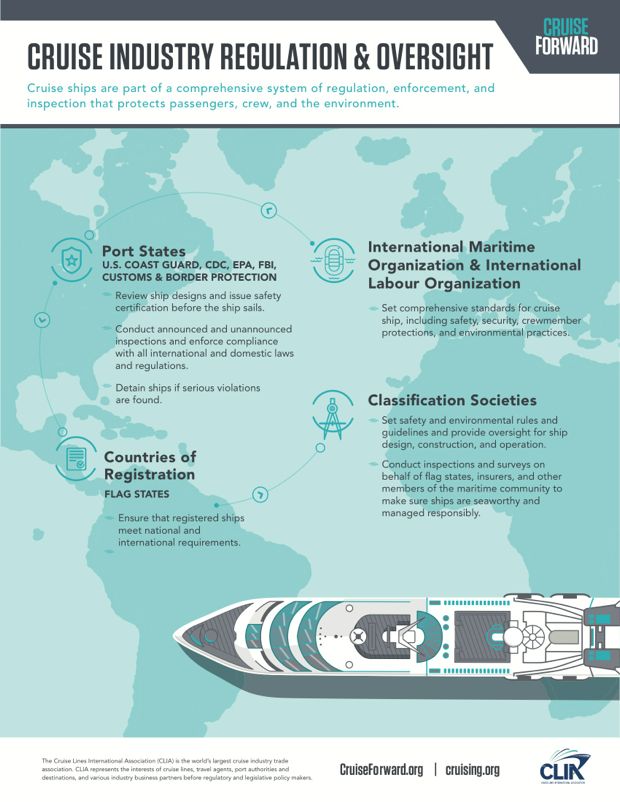
Regulatory Authorities
Cruise operations are tightly regulated with rigorous enforcement by outside authorities. These regulatory authorities set comprehensive standards for safety, security, crewmember protections, health, and environmental performance. International regulators include the IMO, International Labour Organization (ILO), and the World Health Organization (WHO). Also, agencies such as the U.S Coast Guard, the Centers for Disease Control and Prevention (CDC) and the Environmental Protection Agency (EPA) have full authority to regulate and enforce compliance for ships entering or departing from U.S. ports
Inspection and Enforcement
Cruise ships are subject to three robust layers of inspection and enforcement of international law and other requirements:
Port States:
Any country whose ports or waters are visited by a cruise ship has full authority to make sure that it follows international, national, and local regulations. Specifically, Port States inspect and enforce compliance with applicable international and domestic laws and regulations.
Countries of Registration:
The country or Flag State where a cruise ship is registered must make certain that registered ships meet all international requirements. Flag States also inspect ships on a regular basis to ensure compliance with both international and national requirements.
Classification Societies:
Independent agencies, called classification societies, conduct inspections on behalf of Flag States, cruise ship owners, insurers and other members of the maritime community to ensure that ships are in compliance with applicable standards and managed responsibly. These societies also set strict safety and environmental guidelines for design, construction and operation.
Consistent Updates:
International regulations are reviewed and updated to implement improvements. Specifically, the IMO reviews regulations on an ongoing basis through committee and subcommittee meetings, general sessions, and extraordinary sessions when warranted.
Don’t yet have a login? Create a new account
Forgot Password
If you have forgotten your Password, complete the information requested below and click the submit button.
You will receive an email with a reset token to change your password.
Please allow at least 10 minutes to receive the email before requesting another password reset. Please be sure to check your Spam folder for the password reset email.
Please note: the Email you provide must be the one that is associated with your profile.
If you have difficulty resetting your password please email [email protected] .
Create a New CLIA Account
Set or change password.
Please use the form below to set or change your password. Passwords must be at least 8 characters.
We are sorry. An error has occurred.
Please confirm.
OUR THOUGHTS ARE WITH OUR CLIENTS AND COMMUNITY DURING THE AFTERMATH OF IDA.

- Car Accidents
- Truck Accidents
- Wrongful Death
- Environmental Law
- Industrial Accidents
- Motorcycle Accidents
- Ride-Sharing Accidents
- Catastrophic & Serious Injuries
- Pedestrian Accidents
- Bicycle Accidents
- Defective Medical Device
- Premises Liability & Slip-and-Fall Injuries
- Hurricane Ida
- Case Results
- Our Clients
- Cruise Ship Accidents: Navigating the Legal Waters for Compensation
- Personal Injury
Last Updated on : November 04,2023
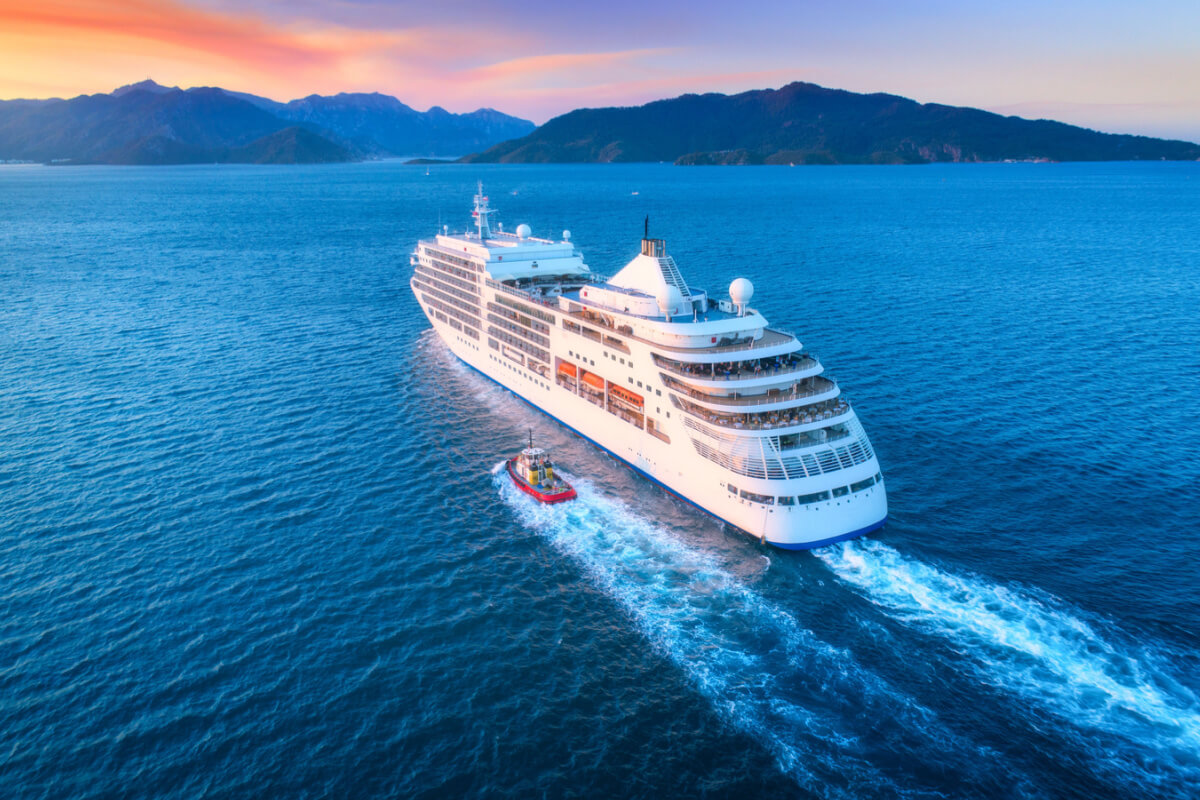
Embarking on a cruise ship often conjures images of relaxation, adventure, and luxury. However, accidents can happen even in such idyllic settings. In August this year, a P&O cruise liner sailing off the coast of the Spanish island Mallorca collided with a fuel tanker, causing minor injuries for some passengers onboard and requiring 300 guests end their trip early and fly home. Earlier this year, the US Coast Guard investigated the injury and death of several American citizens on cruise excursions in the Antarctic.
When cruise ship accidents occur, passengers may find themselves in a complex web of legal issues and medical concerns. Understanding the nuances of cruise ship accidents can be challenging due to the unique laws and regulations governing these floating cities. Maritime law, jurisdictional questions, and the fine print on ticket contracts can all come into play.
Common Types of Injuries Sustained on Cruise Ships
When people think of cruise ships, images of sun-soaked decks and lavish buffets often come to mind. Yet, accidents can and do occur, leading to various types of injuries. Slips and falls are among the most frequent, often happening on wet surfaces around pools or in dining areas. Food poisoning is another concern, as buffets and large-scale food preparation can sometimes lead to outbreaks. Physical activities on board, like rock climbing or using the gym, can result in sprains or fractures. Additionally, close quarters and shared spaces make the spread of illnesses, such as the flu or norovirus, more likely. Even shore excursions present their own set of risks, from vehicle accidents to encounters with local wildlife. The Whaakari/White Island volcanic eruption in New Zealand claiming 22 lives and injured 25 more was a shore excursion for a Royal Caribbean cruise.
Legal Rights of Passengers: What You Need to Know
When passengers board a cruise ship, many are unaware of the legal landscape governing their stay. One key aspect is the ticket contract, often overlooked but filled with information about legal rights and limitations. For instance, these contracts usually specify a time frame within which a passenger must report an injury or file a claim. Maritime law also plays a significant role, especially when an accident occurs in international waters. It’s a specialized area of law with its own set of rules and regulations. Additionally, jurisdictional issues can arise, complicating matters further. For example, a lawsuit may need to be filed in the state where the cruise line is headquartered, rather than where the accident occurred.
Jurisdiction Matters: Where to File a Lawsuit
Jurisdiction can be a complex issue when it comes to cruise ship accidents. Many passengers assume a lawsuit can be filed in their home state or where the ship docked. However, the reality is often more complicated. The ticket contract, which passengers agree to when booking a cruise, usually outlines where legal disputes must be settled. Often, these contracts specify lawsuits must be filed in the state where the cruise line is headquartered. For example, if a cruise line is based in Florida, any legal claims may need to be filed there, regardless of where the accident happened or where the passenger resides.
Importance of Timely Reporting: Steps to Take Immediately After an Accident
When an accident occurs on a cruise ship, time is of the essence. Many passengers might not realize cruise ship ticket contracts often include clauses set specific deadlines for reporting injuries. Missing these deadlines can make it difficult to pursue compensation later. Immediate action is advisable. First, seek medical attention right away, even for seemingly minor injuries. Medical records can serve as valuable evidence. Second, document the incident by taking photos of the accident scene and any injuries sustained. Also, gather contact information from witnesses who can corroborate the account of events. Finally, report the incident to cruise ship personnel as soon as possible.
Gathering Evidence: How to Build a Strong Case
Building a strong case after a cruise ship accident involves more than just reporting the incident. Gathering evidence is a key component in this process. First, passengers should take photographs of the accident scene from multiple angles. These images can help establish conditions leading to the accident. Second, any clothing or personal items affected during the incident should be preserved, as they may serve as evidence. Third, passengers should keep a detailed account of events, including conversations with cruise ship staff or other passengers related to the incident. Additionally, collecting names and contact information of potential witnesses can be invaluable. Medical records, including diagnoses and treatment plans, can also support a claim.
Role of Maritime Law in Cruise Ship Accidents
Maritime law, also known as admiralty law, is a specialized field governing activities at sea, including cruise ship operations. When an accident occurs on a cruise ship, maritime law often comes into play, especially if the incident happens in international waters. Unlike laws on land, maritime law has its own set of rules and regulations and can be quite different. For example, the standards for liability and the types of damages one can claim may vary under maritime law. It also has specific provisions for worker’s rights, environmental regulations, and ship ownership, which can all be relevant in the aftermath of a cruise ship accident.
Settlement vs. Trial: Pros and Cons of Each Option
When it comes to resolving a cruise ship accident claim, passengers generally have two options: settling out of court or going to trial. Each approach has its own advantages and disadvantages. A settlement is often quicker and less stressful, allowing passengers to receive compensation without the uncertainty of a court verdict. However, the amount received may be less than what could potentially be won in court. On the other hand, going to trial offers the chance for a larger payout, but it comes with risks. Trials can be lengthy, costly, and there’s no guarantee of winning. Additionally, the emotional toll of reliving the accident in court should not be underestimated.
Key Takeaways for Protecting Your Rights After a Cruise Ship Accident
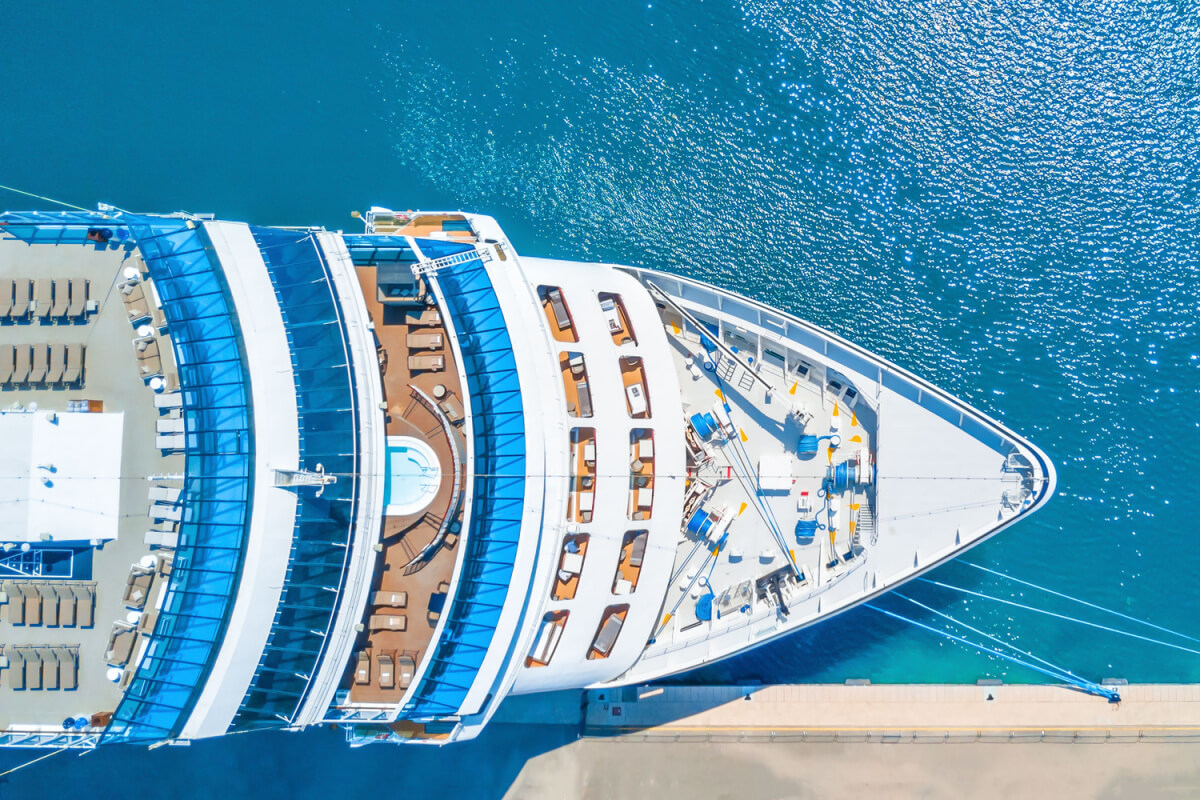
In the aftermath of a cruise ship accident , passengers face a myriad of challenges, from medical concerns to legal complexities. Understanding the types of injuries commonly sustained can help in taking preventative measures. Being aware of legal rights, jurisdictional issues, and the role of maritime law can offer valuable insights into the legal landscape. Timely reporting and meticulous evidence gathering are important steps in building a strong case. Finally, weighing the pros and cons of settling versus going to trial can guide passengers in making an informed decision. Armed with these insights, passengers can be better prepared to protect their rights and seek compensation for any injuries or damages sustained during a cruise vacation.
If you have suffered an injury on a cruise ship, contact Alvendia Kelly & Demarest today at 504-200-0000 to schedule a free consultation.
Share this article on:

Construction Site Injuries: Understanding Your Rights as a Worker

Rollover Accidents: Causes, Injuries, and Legal Recourse
- Car Accident
- Case results
- Class Action
- Community Aid
- Hard Rock Lawsuits
- Insurance Claims
- Legal Advice
- Mardi Gras Accident Attorney
- Motorcycle Accident
- Premise Liability
- Recent News
- Uncategorized
- Work-Related Accident

In 2003, after being dissatisfied with the quality of legal care for victims of car accidents, Roderick ‘Rico’ Alvendia sought to establish a new firm focused on providing high-quality legal services to aid injured victims and their families. J. Bart Kelly, sharing Rico’s passion for upholding justice, joined the firm later that year, and established a partnership.
They helped me with every need possible. The back issues I had could have been much worse if they didn’t step in and help me. Bart, Megan, and all the people that work for this legal team are amazing. I would recommend them to anyone. Thank you all for helping me each step of the way. I can’t thank these people enough.
- T. Gibson-Warren
I want to thank the whole team for all your help and persistence with my settlement. I truly appreciate.
- A. Alfortish
Great experiences every time I need you guys. I always recommend your firm.
Bart and his team were wonderful to work with. It was clear that their vision and determination to fight for our case, is why we were able to reach a settlement, where my previous attorney was not.
Bart Kelly and his legal team reevaluated my case after another attorney backed away from a legal challenge, I just want to say Thank You to mr kelly and his team for the hard work and dedication to my case to make it successful . Thank You
Attorney Kelly is an impeccable attorney. He has represented me extremely well. I was very, very, very pleased with the outcome of my settlement. He’s highly recommended … to give assistance to anyone. I thank him for his services and I’m super elated over the way he handled the case. He is a phenomenal lawyer.
- S. Spears
I’ve learned the importance of having good coverage insurance, thanks to Mr. Kelly explaining everything to me. We do not hope or wait for accidents, but rest assured that I will call Mr. Kelly again if I need his services. Thank you.
- Ann Zimmer
Being represented by Mr. Kelly and his legal team was a very awesome experience. They were very patient and they worked really hard in resolving my case. I would most definitely refer them to all my friends and associates. Thank you very much.
- Nathaniel Bonney
I am very grateful for Mr. Bart’s assistance. He was very professional and fair. I never felt like a client with him. I always felt like a close friend. Also, I would like to thank everyone in the office for being friendly, kind, and for helping me.
- Glac Mantuso
Just want to say thanks a lot because I received way more than I expected. You guys did a wonderful job of getting the max for myself and my family. Everyone I met or spoke to on the phone was really professional and nice. Once again, thanks a lot.
- Jessica Quinn
J. Bart Kelly is the best attorney I have ever met. He is intelligent, caring, understanding, and knows how to protect his clients. I love his strong take-charge attitude to fight for what is right.
- Teri Haas
My lawyer took the time to explain everything in a clear and concise manner. I’ve been treated fairly and with the utmost respect. I am very appreciative of all of the staff at AKD for their services.
- James Barber
I am grateful for the way that my case was handled. Thanks.
- Darryl Hill
Thanks to Bart and Meg. Fantastic group of people and team. Love you guys.
- Claudine Hope
I was involved in a terrible accident and had a lot of serious injuries. I was so happy that Bart (and his team, including his nurse paralegal) was my attorney. The results were much more than expected as far as the settlement. Thanks.
- Karen Bourgeois
I received exceptional service from the law office of Bart Kelly. He is a great attorney who cares about what you are going through, and I am very pleased with the outcome.
- Melissa Sanchez
Recommended posts.
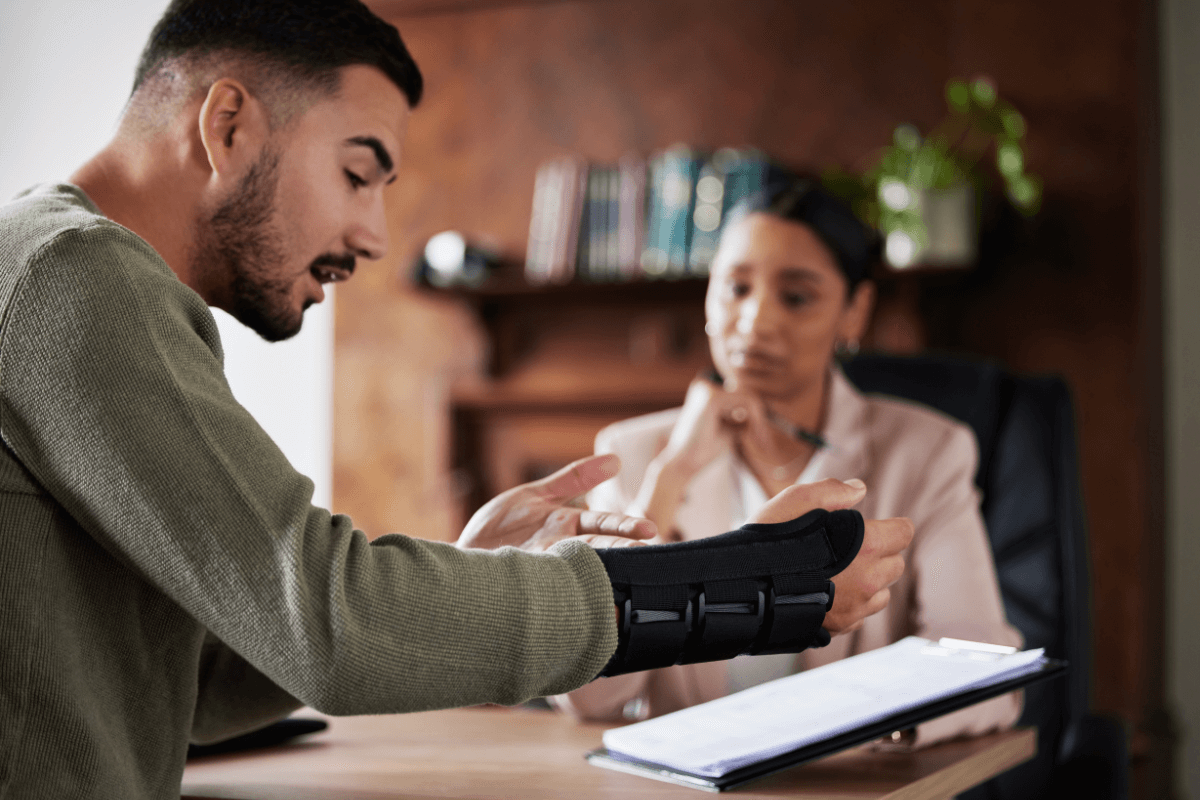
- First Name *
- Type of Case * Type of Case * Hurricane Damage Wrongful Death Car Accidents Truck Accidents Motorcycle Accidents Industrial Accidents Catastrophic & Serious Injuries Pedestrian Accidents Bicycle Accidents Defective Medical Device Premises Liability & Slip-and-Fall Injuries Ride-Sharing Accidents Class Action & Mass Tort Uninsured & Underinsured Motorist Accidents Chemical Exposure & Lead Poisoning Medical Malpractice Other
- Describe Your Case
- Find a Lawyer
- Ask a Lawyer
- Research the Law
- Law Schools
- Laws & Regs
- Newsletters
- Justia Connect
- Pro Membership
- Basic Membership
- Justia Lawyer Directory
- Platinum Placements
- Gold Placements
- Justia Elevate
- Justia Amplify
- PPC Management
- Google Business Profile
- Social Media
- Justia Onward Blog
- Maritime Law FAQs
Can I recover damages after a recreational boating accident if I was partly at fault? How does the contract in my cruise ship ticket affect my right to sue for injuries? What are maintenance and cure? How are Jones Act damages different from workers’ compensation benefits? How are Jones Act claims different from personal injury claims? Should I file for workers’ compensation or benefits under the Longshore and Harbor Workers’ Compensation Act? What is the doctrine of unseaworthiness? What damages can I recover under the Death on the High Seas Act? What should I do if I discover an oil spill? Do I get rewarded for rescuing a vessel that has been abandoned? What are the legal duties of a carrier transporting cargo at sea?
You can potentially recover damages after a recreational boating accident if you were partly at fault. If your state is a pure comparative negligence state, or if maritime law governs your claim, you can recover damages proportionate to the defendant’s fault, regardless of how much you were at fault. If your state is a modified comparative negligence state, you can recover damages proportionate to the defendant’s fault, but only if you were not at fault beyond a certain percentage. If your state is a contributory negligence state, you will not be able to recover damages if you were at fault to any degree.
Contracts in cruise ship tickets may limit passengers to suing for injuries within a certain time and in a certain place. For example, an injured passenger might need to file a claim within one year, and they might need to notify the cruise line within six months. A passenger might need to file a claim in a state or city where the cruise line operates, even if they live in a distant state. A contract also might specify the law that will apply to the claim. A passenger may challenge the validity of a contract or a specific provision in a contract, but courts generally enforce them.
Maintenance and cure are traditional benefits that maritime workers can receive while they recover from an injury or illness, regardless of fault. Maintenance involves reimbursement for basic, necessary household expenses, substituting for room and board on a vessel. Cure involves coverage for medical treatment that is reasonable and necessary. Maintenance and cure end when a worker reaches maximum medical improvement.
Jones Act damages for injured seamen require proving fault by an employer or a coworker, which makes them similar in some ways to personal injury claims. In contrast, workers’ compensation benefits do not require proving fault. Jones Act damages cover a broader range of harm than workers’ compensation, though. For example, they include non-economic damages such as pain and suffering, which are not available through workers’ compensation.
Jones Act claims impose a lower burden of proof on injured seamen than personal injury claims do on other accident victims. Both types of cases involve showing that negligence by another party caused the injuries. However, causation in a Jones Act claim only requires proving that the defendant’s negligence contributed to the injuries to any extent, even if it was minimal. In a personal injury case, causation usually requires proving that the defendant’s negligence was a substantial factor in causing the injuries.
You might be able to file for both workers’ compensation and benefits under the Longshore and Harbor Workers’ Compensation Act (LHWCA) if you are eligible under both systems. However, you cannot receive double benefits for the same injury. LHWCA benefits are usually more generous and may provide types of disability benefits that are not available through workers’ compensation in your state.
The doctrine of unseaworthiness requires a ship owner to ensure that their ship, equipment, and crew are adequate to fulfill their intended purposes in operating the ship. This is an absolute and non-delegable duty. If the ship, equipment, or crew is not reasonably adequate, and a seaman is injured as a result, the seaman can sue the ship owner for damages under this traditional theory of maritime law.
Damages under the Death on the High Seas Act (DOHSA) are generally limited to economic losses sustained by qualifying family members of the victim, such as the loss of financial support. They cannot recover non-economic damages except in plane crash cases. Moreover, an estate of a victim can bring a claim for damages incurred by the victim only in very limited situations. The broader remedies under state wrongful death laws are usually preempted by DOHSA, but a wrongful death claim may be possible in certain circumstances. A Jones Act claim is not preempted, and this may provide greater damages.
You should contact the National Response Center at (800) 424-8802, even if you were not responsible for the spill. If you cannot contact the NRC directly for any reason, you can contact the US Coast Guard Marine Safety Office if an oil spill occurred on coastal waters, the Great Lakes, or the Mississippi River, or at a port or harbor. You can contact an Environmental Protection Agency regional office if the spill occurred on inland waters. Information in the report includes the date, time, and location of the spill, the responsible party (if known), the source and cause of the spill, the amount spilled, and any harm or ongoing hazard caused by the spill, among other issues.
Yes, you likely can receive a “salvage award” for rescuing a vessel that has been abandoned, has run aground, or is otherwise disabled. An award is usually greater than the actual cost of the rescue operation. To qualify for a salvage award, the vessel that you rescued must have faced a present and impending marine peril, you must have provided the salvage service voluntarily, and the operation must have been at least partly successful. Several factors go into calculating a salvage award, such as the value of the salvaged property, the danger that it faced, the risk that you faced, and the resources and labor used in conducting the operation.
A carrier transporting cargo at sea must make sure that their vessel is seaworthy. They also must provide it with proper supplies, equipment, and personnel. The vessel must contain areas to store the cargo safely and appropriately. Under federal law, these duties are automatically incorporated in any contract between the shipper and the carrier. They cannot be waived by contract, but they may be enhanced. Any violation of these duties or additional contractual duties likely will result in liability for damage caused to the cargo.
Last reviewed June 2023
Maritime Law Center Contents
- Maritime Law Center
- Recreational Boating Accidents Leading to Legal Claims
- Cruise Ship Law
- Injured Seamen & Legal Claims Under the Jones Act
- Benefits Legally Available to Injured Longshore and Harbor Workers
- Maintenance and Cure Benefits Legally Available to Injured Maritime Workers
- The Death on the High Seas Act & Lawsuits Based on Fatal Maritime Accidents
- Cargo Loss Disputes Under Maritime Commercial Law
- Salvage Operations at Sea
- Oil Spill Reporting & Related Legal Claims
- Find a Maritime Law Lawyer
Related Areas
- Personal Injury Law Center
- Workers’ Compensation Law Center
- International Law Center
- Related Areas
- Bankruptcy Lawyers
- Business Lawyers
- Criminal Lawyers
- Employment Lawyers
- Estate Planning Lawyers
- Family Lawyers
- Personal Injury Lawyers
- Estate Planning
- Personal Injury
- Business Formation
- Business Operations
- Intellectual Property
- International Trade
- Real Estate
- Financial Aid
- Course Outlines
- Law Journals
- US Constitution
- Regulations
- Supreme Court
- Circuit Courts
- District Courts
- Dockets & Filings
- State Constitutions
- State Codes
- State Case Law
- Legal Blogs
- Business Forms
- Product Recalls
- Justia Connect Membership
- Justia Premium Placements
- Justia Elevate (SEO, Websites)
- Justia Amplify (PPC, GBP)
- Testimonials

Do Maritime Laws Affect Cruise Ships?
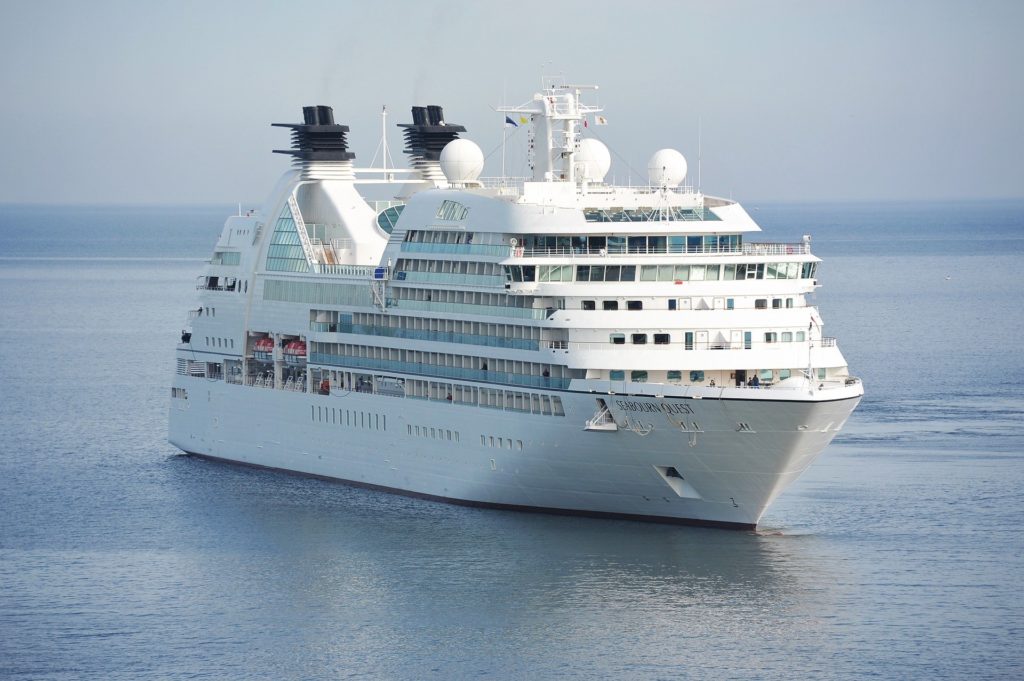
When a lot of people hear the term “ maritime law ”, they tend to think of things like injured sailors at work on a cargo ship, or perhaps some kind of laws to prevent illegal goods from being smuggled into (or out of) a country via boat.
Maritime law affects many different aspects of the maritime industry, in ways that civilians who do not directly work in a maritime capacity may be unaware of. One of these ways is how maritime laws affect the operation of cruise ships, and the rights of the passengers onboard.
As many maritime laws are aimed at helping to protect the rights of people onboard ships, both worker and passenger, these laws may impact your vacation trips more than you’re expecting. Even if you don’t find yourself getting sick or hurt on a cruise ship, understanding these laws better can help you understand your rights as a passenger on these voyages.
Maritime Laws & Cruise Ships
Cruise ships flying an American flag all fall under the protection of the Jones Act , as do all other vessels in the United States.
The Jones Act is a series of laws designed to protect the workers and passengers on maritime vessels should they be injured or fall ill during their time on the vessel. While the majority of the Jones Act is aimed at protecting maritime workers, there actually exists a section of the law known as the Passenger Vessel Services Act (or PVSA) that governs certain aspects of how cruise ships can operate.
One of the biggest impacts it has on cruise ships is in how their itineraries are structured. In order to be in compliance with the PVSA, any ship leaving from one port in the US and arriving at another port is required by law to dock at a foreign country along the way, unless it is flying the flag of the United States. This is why cruise ship routes can be so convoluted at times, as many vessels are actually registered in (and flying the flag of) other countries. (This has also led to situations where a vessel is fined for the actions of a passenger who leaves the ship on a port and is then injured or otherwise disruptive.)
Where things get even more complicated is how you are able to hold a cruise ship accountable for injuries or illness suffered while on board. The Jones Act only directly pertains to vessels sailing out of America who fly the flag of the US, such as river cruises and the like. International cruise ships are frequently registered in other countries, and as a result cases involving these vessels tend to fall more under federal foreign voyage laws. The involvement of these laws depends on where the injury took place – if a ship is still within 12 miles of the United States shoreline, it still has to follow US law.
Outside of that radius, however, and the ship is considered to be in international waters. There are many situations where, if someone is injured or falls sick in international waters, the United States is able to investigate any charges of crime or negligence as long as the individuals involved are US nationals on a ship that is departing from or arriving at a port in the United States. This ties back in with the PVSA, in that it requires all cruise ships leaving from the US to arrive back at another port in the US, with a stop at a foreign country along the way. Under these circumstances, the US may have jurisdiction over investigating a crime or injury due to negligence at sea.
As you can see, the laws dictating cruise ships can be difficult to understand, and even trickier to uphold. But if you’ve been injured or got sick during your last cruise, the experienced maritime lawyers of O’Bryan Law can help. Contact us today with the details of your case and we can help you fight for justice and understand the applicable laws better.
CONTACT US:
1-800-OBRYANS
(1-800-627-9267)
[email protected]

Respectfully,
Clarence Bodenstein
Cutomer --> Gary,
Thank you. You are awesome. Vance and I appreciate the huge effort that you put into getting us a settlement.
Cutomer --> Dear Mr. Karamanian
I just wanted to thank you for the fantastic job you did with my case. I appreciate all the help, support and professionalism you displayed while working to achieve an extremely favorable outcome for me and my family. There were many complex issues involved with my case that you not only handled expertly, but also explained to me in a way that was easy to understand. I always felt confident in your abilities and fortunate to have you representing me. Thank you again.
Ibrahim Kobeissi
My wife and I would like to thank you for working with us and putting up with Me through a difficult time it has been a pleasure working with you also can you email me a copy of my fees if not trouble so I can see where we stand sincerely.
Fred Damer, F/V SEA PRIDE
Captain lon calloway.
Cutomer -->
If you'd like to get in contact with us, please fill out the short form below and we will get in touch as soon as possible.
Recent Blog Posts
Maritime employees on a tug face danger associated with their job, putting …
A Norfolk Southern train derailed in Ohio recently and caused a string of u …
Mariners face the risk of tugboat accidents in Texas and other injuries due …
Bangor Daily News
Maine news, sports, politics, election results, and obituaries
The era of large cruise ship visits to Bar Harbor might soon end

Share this:
- Click to share on Twitter (Opens in new window)
- Click to share on Facebook (Opens in new window)
- Click to share on Reddit (Opens in new window)
- Click to print (Opens in new window)
- Click to email a link to a friend (Opens in new window)

Unless another court ruling overturns Bar Harbor’s new cruise ship limits, 2025 is expected to be the last year that large passenger ships drop anchor in Frenchman Bay.
But it could be sooner than that — or may have already passed — if a judge decides that the town must enforce the new limits this year.
“Large” can be a relative term when the smallest cruise ships that visit Bar Harbor are more than 200 feet long and can accommodate 100 paid passengers. Most of the ships that visit Bar Harbor, Maine’s busiest cruise ship port, are closer to 1,000 feet long and carry between 1,800 and 4,000 passengers per voyage.
It is these larger ships that effectively will be banned from visiting the tourist destination when the town’s new daily limit of 1,000 passengers per day starts being enforced. Of Bar Harbor’s current 104 cruise ship visits scheduled for this year, 70 would be prohibited if the daily limit was to go into effect before May 2, when the first large ship of the year, carrying nearly 2,400 passengers, is expected to arrive.
Of the ships that will still be allowed, most carry approximately 100 to 200 passengers and rarely do two of them appear in Bar Harbor on the same day. As a result, the town most likely will get only a couple hundred passengers ashore on cruise ship days — below the daily 1,000-passenger limit and far below the 2,000 to 5,000 passengers that have sometimes come ashore when multiple ships are in town at the same time.

But when the new limit will be fully enforced is a heated subject of debate in Bar Harbor, where the council says it will honor reservations made by large ships before voters approved the new limits on Nov. 8, 2022. Charles Sidman , a local resident who spearheaded the referendum vote, is taking the town to court to try to legally compel it to enforce the cap now.
In addition, a coalition of local businesses is challenging the new daily limit in federal court, arguing that it runs counter to federal maritime law and is unfairly onerous. A federal judge upheld the new daily limit in February, but the business group has said it intends to appeal the decision.
Regardless of which entity prevails in court, the number of annual cruise ship visits to Bar Harbor, which gets millions of visitors each year who arrive each year by car or bus, already is declining and likely will never regain the volume of recent years.
Outside the COVID-19 pandemic years of 2020 and 2021 — when the global cruise ship industry ground to a halt and no ships came to Bar Harbor — the town recently has averaged roughly 150 visits each year, all between late April and early November, and received an annual total between 200,000 and 250,000 passengers. This year, even if large ships are allowed, the town will get fewer than 200,000 passengers for the first time — apart from 2020 and 2021 — since 2016.

After cruise ships first started showing up sporadically off Bar Harbor in the 1980s, their numbers jumped above 50 per year in 2001 and then above 100 per year in 2008. The town’s first year with more than 100,000 cruise ship passengers was in 2004, when it welcomed 87 ships into Frenchman Bay.
Along the way, the town has worked with local cruise industry officials to find ways to manage the flow of passengers to and from the downtown waterfront. It moved anchorage points in the bay behind the Porcupine Islands to make the ships less visually imposing from downtown, and tried making adjustments to how tour buses come and go from West Street to relieve traffic congestion, even as the number of visits consistently increased over time.
But as complaints continued to come in, the town decided in 2021 — when annual visits to Acadia National Park soared to more than 4 million — to conduct a survey to ask local people what they thought about local cruise ship traffic. More than half of the survey’s respondents said the volume of cruise ship visits was hurting the town.
With the writing on the wall, both town officials and local cruise industry officials began discussing how to reduce the number of large ships that visit each year.
Together, they came up with a plan to impose a daily passenger cap of 3,800 passengers for May, June, September and October, and a daily cap of 3,500 for July and August. They also agreed on monthly caps of 30,000 passengers in May and June, 40,000 in July and August, and 65,000 in September and October.
But Sidman’s 2022 citizens’ petition effort, which led to the November referendum that year, derailed that plan.
For now, with Bar Harbor officials saying they plan to honor large cruise ship reservations made prior to the November 8, 2022 vote, the number of visits scheduled for 2025 stands at 18, all of which are large ships that together would bring nearly 57,000 ship passengers to town between late August and early October. The Regal Princess, which carries 3,560 passengers, would be the final large ship to visit Bar Harbor, on Oct. 28, 2025.
All large ship reservation requests that have come in since residents approved the daily 1,000-passenger cap have been denied, according to town officials.
More articles from the BDN
Bill trotter.
A news reporter in coastal Maine for more than 20 years, Bill Trotter writes about how the Atlantic Ocean and the state's iconic coastline help to shape the lives of coastal Maine residents and visitors.... More by Bill Trotter
Singaporean firm whose ship took down the Baltimore bridge just cited an 1851 maritime law to cap liability at $44 million

The owner and manager of a cargo ship that rammed into Baltimore’s Francis Scott Key Bridge before the span collapsed last week filed a court petition Monday seeking to limit their legal liability for the deadly disaster.
The companies’ “limitation of liability” petition is a routine but important procedure for cases litigated under U.S. maritime law. A federal court in Maryland ultimately decides who is responsible—and how much they owe—for what could become one of the costliest catastrophes of its kind.
Singapore-based Grace Ocean Private Ltd. owns the Dali, the vessel that lost power before it slammed into the bridge early last Tuesday. Synergy Marine Pte Ltd., also based in Singapore, is the ship’s manager.
Their joint filing seeks to cap the companies’ liability at roughly $43.6 million. It estimates that the vessel itself is valued at up to $90 million and was owed over $1.1 million in income from freight. The estimate also deducts two major expenses: at least $28 million in repair costs and at least $19.5 million in salvage costs.
The companies filed under a pre-Civil War provision of an 1851 maritime law that allows them to seek to limit their liability to the value of the vessel’s remains after a casualty. It’s a mechanism that has been employed as a defense in many of the most notable maritime disasters, said James Mercante, a New York City-based attorney with over 30 years of experience in maritime law.
“This is the first step in the process,” Mercante said. “Now all claims must be filed in this proceeding.”
Cases like this typically take years to completely resolve, said Martin Davies, director of Tulane University Law School’s Maritime Law Center.
“Although it’s a humongous case with a very unusual set of circumstances, I don’t think it’s going to be that complicated in legal terms,” he said. “All aspects of the law are very clear here, so I think the thing that will take the time here is the facts. What exactly went wrong? What could have been done?”
A report from credit rating agency Morningstar DBRS predicts the bridge collapse could become the most expensive marine insured loss in history, surpassing the record of about $1.5 billion held by the 2012 shipwreck of the Costa Concordia cruise ship off Italy. Morningstar DBRS estimates total insured losses for the Baltimore disaster could be $2 billion to $4 billion.
Eight people were working on the highway bridge—a 1.6-mile (2.6-kilometer) span over the Patapsco River—when it collapsed. Two were rescued. The bodies of two more were recovered. Four remain missing and are presumed dead.
The wreckage closed the Port of Baltimore, a major shipping port, potentially costing the area’s economy hundreds of millions of dollars in lost labor income alone over the next month.
Experts say the cost to rebuild the collapsed bridge could be at least $400 million or as much as twice that, though much will depend on the new design.
The amount of money families can generally be awarded for wrongful death claims in maritime law cases is subject to several factors, including how much money the person would have likely provided in financial support to their family if they had not died.
Generally, wrongful death damages may also include things such as funeral expenses and the “loss of nurture,” which is essentially the monetary value assigned to whatever moral, spiritual or practical guidance the victim would have been able to provide to their children.
Associated Press writer Stefanie Dazio in Los Angeles contributed to this report.
Latest in Leadership
- 0 minutes ago

Canada proposes higher tax on 0.1%—For anyone under 40, it’s ‘just harder to establish yourself,’ finance minister says

Treasury secretary Janet Yellen calls Iran’s actions ‘malign and destabilizing’

Biden jabs Trump on media platform stock losses—’He might do better under my tax plan than his’

Frustrating flight cancellations, daylong waits prompt DOT to strike deal on airline consumer complaints

Police have made arrests in Toronto heist of 24 gold bars and millions in cash

State Street, with $3.6 trillion in assets, is counting on the Fed to slash interest rates—’The overall inflation picture supports a cut,’ CIO says
Most popular.

Apple loses its spot as the world’s top seller of smartphones after tough China competition from brands like Xiaomi and Huawei

Some ex-TikTok employees say the social media service worked closely with its China-based parent despite claims of independence

Founder of Toms shoes went on a men’s retreat with other entrepreneurs to combat his loneliness and depression: ‘I lost a lot of my clear meaning and purpose’

Bill Gates unloaded one of his properties in less than two weeks on the market—and it only cost $5 million

The ‘Oracle of Wall Street’ expands on why the ‘crisis of the American male’ will send home prices crashing 30%: Gaming, rampant loneliness, and not enough single women homebuyers

The Marriage Pact, a Stanford economics project that has expanded to nearly 90 colleges, is disrupting dating apps by not focusing on looks

- Advertising
- Shipbuilding
- Coastal/Inland
- Law & Regulations
Fincantieri Lands Norwegian Cruise Line Order for Four Next-Gen Cruise Ships

April 9, 2024
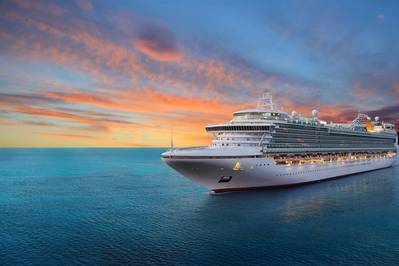
© NAN / Adobe Stock
Fincantieri has received a highly significant order from Norwegian Cruise Line Holdings for the construction of four new next-generation cruise ships.
The order entails the construction of two cruise ships for the Regent Seven Seas Cruises and two for the Oceania Cruises brands respectively.
The ships designated for Regent Seven Seas Cruises, scheduled for delivery in 2026 and 2029, will boast a gross tonnage of 77,000 tons and accommodate approximately 850 passengers.
Meanwhile, the vessels for Oceania Cruises, set for deliveries in 2027 and 2028, will feature a gross tonnage of 86,000 tons and accommodate around 1,450 passengers. The contract for these four new units is now in effect and has already been secured through financing.
Additionally, Fincantieri has signed a letter of intent with the same shipowner to explore the construction of four additional units.
These vessels, slated for delivery in 2030, 2032, 2034, and 2036, will be the largest ever built for the Norwegian Cruise Line (NCL) brand, with a gross tonnage of approximately 200,000 tons and the capacity to accommodate around 5,000 passengers each.
The four-ship NCL order is expected to replace a separate, effective, two-ship order for Oceania Cruises initially placed to secure availability with the shipyard. The four-ship order for NCL is still being finalized and is subject to financing. Delivery for the second Oceania Cruises ship is contractually scheduled for the fourth quarter of 2028, but may be delayed to 2029, with all expected delivery dates being preliminary and subject to change, according to Fincantieri.
“We are particularly proud of this impressive new agreement and the partnership with a historic and prestigious client like Norwegian Cruise Line Holdings, confirming a continuity of strategic relationships that we consider a great industrial value,” said Pierroberto Folgiero, CEO and Managing Director of Fincantieri stated: “
“We are excited to continue our partnership with Fincantieri on this strategic new-ship order for the future of our company. This will ensure the steady introduction of cutting-edge vessels into our fleet and solidify our long-term growth,” added Harry Sommer, President and Chief Executive Officer of Norwegian Cruise Line Holdings.
Related News
Broker howden launches red sea cargo war insurance as ship risks surge.

Howden has started offering war risk cargo insurance to cover vessels sailing through the Red Sea against drone and missile…
New Agreement Targets Nordic Hydrogen Projects

Provaris Energy and Norwegian Hydrogen AS have announced a new agreement to jointly progress the identification and development…
Keel Laid for US Navy's First Constellation Frigate

The U.S. Navy on Friday celebrated the keel laying of the lead ship of the Constellation class of guided-missile frigates…
Ten Years After South Korean Ferry Disaster, Mothers Express Their Grief On Stage

For Lee Mi-kyung, whose son was one of the 250 children who died in South Korea's Sewol ferry disaster 10 years ago, coping…
Sponsored Content
Chris-marine’s solutions help to prolong engine lifetime.

Abnormal liner wear and seized or broken piston rings can result in costly consequences.
AST is now AST Networks, bringing you remote connectivity wherever you are

AST has developed and grown, increasingly providing full-service network solutions, far beyond traditional satellite services.
Streamline SIRE 2.0 Transition with ABS Wavesight™ Nautical Systems

As the maritime industry transitions to the updated SIRE 2.0 inspection regime from the familiar SIRE VIQ7 framework, operators are bracing themselves for a period of adjustment.
Chief Engineer - with sign-on bonus and relocation package
Second assistant engineer - mixed work schedule, second cook, third assistant engineer - mixed work schedule, chief radio electronics technician (iat).

Waves Slam Ferry in Long Island Sound

Dredging: Plenty of Issues, New WRDA on the Way

Tech Files: New Products & Systems
Subscribe for Maritime Reporter E-News
Maritime Reporter E-News is the maritime industry's largest circulation and most authoritative ENews Service, delivered to your Email five times per week
A former corporate lawyer died after falling from a luxury liner, reports say. One expert says cruise safety is outdated.
- Nigel Blythe-Tinker, a top UK lawyer, died after falling to his death from a luxury cruise balcony, reports say.
- The 72-year-old died in 2023, the London High Court determined.
- A cruise industry expert told BI that updates to maritime safety requirements are infrequent and inadequate.

A top UK lawyer who vanished after falling from a cruise has been declared dead by London's High Court of Justice, The Telegraph reported.
Nigel Blythe-Tinker, 72, was on board the Seven Seas Mariner when he fell to his death in July 2023.
Blythe-Tinker, the former head of legal at gambling firm William Hill, was vacationing on a Mediterranean cruise while planning to return to England after a stint in Australia.
Blythe-Tinker died after falling from his balcony while the cruise liner was en route from Marseille to Barcelona on 21 July, CCTV footage revealed, per the Telegraph.
While the chances of falling overboard on a cruise ship are extremely low , a cruise ship expert told Business Insider that the industry's safety protocols needed updating.
The late lawyer's daughter, Sophie Elizabeth Blythe-Tinker, filed a claim for a declaration of presumed death in October. The directions hearing took place on March 25.
Sophie Elizabeth Blythe-Tinker told the court her father "wasn't himself" and had become "increasingly abnormal" during his time on board, per the Telegraph.
"I have viewed the video evidence," she said. "Something descends from the ship at 4:28 a.m. I'm prepared to accept that that was a body, and the direction is consistent with it coming from the suite Mr Blythe-Tinker was in."
Judge Chief Master Karen Shuman concluded, per The Telegraph, "I'm satisfied on the evidence before me that Mr Blythe-Tinker died at 4:28 central European time by falling to his death from the ship that he was on."
The reason for the fall remains unclear.
Related stories
A Regent Seven Seas Cruises spokesperson told BI, "We are very sorry to the family of Mr. Blythe-Tinker for their loss, and hope that they find some comfort and closure in the High Court's findings."
Cruise ship safety
Ross Klein, an international authority on the cruise ship industry , told BI he believes cruise ship safety rules are outdated. He said no substantial changes have been made to cruise ship safety since the Cruise Vessel Security and Safety Act of 2010.
"There have been no improvements. Absolutely none, zero," he said.
Klein said the majority of cases of passengers falling or jumping overboard could be traced to intoxication.
"That's something that's entirely within the control of the cruise line. But they'd rather sell their all-you-can-drink packages than take some responsibility for people's overconsumption of alcohol," he said.
"Ninety percent of people who are going overboard go overboard between midnight and 7 a.m.," said Klein, adding that "those are the hours that people would be the most intoxicated."
It comes amid after a 20-year-old Royal Caribbean passenger has been missing since April 4 after jumping overboard at 3:30 a.m., reports say. Witnesses told the New York Post that the man appeared to be "pretty drunk."
The father of Levion Parker who went missing questioned why his son was able to consume so much alcohol while on the ship, in an interview with a local Florida news outlet, the Sun North Port.
"We don't drink. I'd like to know how my son was served so much alcohol," said Francel Parker.
Ross Klein said that suicides make up only a small fraction of cruise deaths but that "there's really no intervention available" for any passengers struggling with suicidal ideation.
Klein is "not very hopeful" about actionable change regarding cruise safety in the near future "because nobody's pushing for changes."
"I think legislation has been dreadfully inadequate," he said.
"Going on a ship today would be like going on a ship in 1990. There have been no improvements. Railing heights are the same," Klein said.
Watch: Cruise ship captain breaks down 8 cruise ship disasters in movies and TV
- Main content

IMAGES
VIDEO
COMMENTS
A cruise ship owes its passengers a duty of safe transportation, but ticket contracts usually impose restrictions on lawsuits brought by injured passengers. ... Florida Statute 910.006 offers Florida law enforcement special maritime jurisdiction when an offense is committed and the victim is resident of Florida; ...
The Jones Act — which is actually the Merchant Marine Act of 1920 — is a federal statute that requires shipping to U.S. ports to be done by ships that were constructed in the United States, carry an American crew and bear U.S. flags (which requires being registered in the United States). In addition, the law provides protection for the crew ...
Maritime law requires cruise ships to have medical facilities and professionals on board, aligned with the American College of Emergency Physicians' guidelines. However, the scope of medical services can vary significantly. Passengers should inquire about the onboard medical facilities, understand the limitations, and consider comprehensive ...
Cruise ship law is imprecise and crimes are difficult to prosecute. Learn about cruise ship law, cruise ship crime and the code of the high seas. Science Tech ... The problem is that maritime law— the law that applies to people on the water— is famously convoluted. Not all cruise ships are required to report crime statistics to any ...
Our cruise ship accident law firm has had multiple attorneys recognized as "Best Lawyers" 2016-2024 ® and has been named to "Best Law Firms" ® by US News & World Report annually since 2016. Our leading cruise ship accident lawyers have more than 200 years of experience handling maritime law and cruise ship accident claims.
Bruce Parkinson. For over 100 years, U.S. legislation called The Jones Act has dictated that only American-owned, crewed, registered and built ships can transport cargo between U.S. ports. An even ...
The ship owner has a number of legal obligations under cruise ship law. These obligations include: The obligation to provide a seaworthy vessel: This means that the ship must be fit for its intended purpose and free from any defects that could cause harm to passengers. The ship owner is responsible for inspecting the ship regularly and making ...
Award-Winning Cruise Ship and Maritime Lawyers. Lipcon, Margulies & Winkleman, P.A. is a preeminent maritime and admiralty law firm with an international reputation for integrity, compassion and excellence. ... We are regularly featured on international and national news programs for our expertise in the area of maritime law. Our maritime ...
Navigating Cruise Ship Laws with Legal Help. If you have a situation involving a cruise line and need legal advice, consider reaching out to an experienced attorney who practices maritime & transportation law or personal injury law. To learn more about this area of law, see our overview on maritime & transportation law.
Maritime law, or admiralty law, covers issues such as boating and cruise ship accidents, seaman injuries, shipping disputes, salvage operations, and oil spills. ... Contracts in cruise ship tickets may limit passengers to suing for injuries within a certain time and in a certain place. A contract also might specify the law that will apply to ...
According to cruise expert Dr. Ross Klein's definitive data, Mr. Jones is the 405th person who has gone overboard from a cruise ship since 2000. Maritime law requires ship owners to immediately take steps to search and rescue passengers (or crew members) as soon as they realize that someone has gone overboard.
Cruise ship lawyers specialize in maritime law and represent passengers, crew members, and cruise lines in legal matters. They assist clients in pursuing claims, negotiating settlements, and navigating the complex legal landscape of the cruise industry. Cruise ship lawyers play a crucial role in ensuring justice and fair compensation for those ...
Maritime law's complexities underscore the importance of specialized knowledge and legal support when pursuing a cruise ship injury claim. For passengers facing the daunting aftermath of an onboard accident, understanding these legal intricacies is the first step toward justice and recovery.
The Jones Act: A federal law that regulates maritime commerce in the United States. The Jones Act requires goods shipped between U.S. ports to be transported on ships that are built, owned, and ...
The Jones Act, also known as the Merchant Marine Act of 1920, is a federal law that grants seamen the right to seek compensation for injuries sustained on the job. It applies to any vessel engaged in trade between U.S. ports, including cruise ships. Under the Jones Act, injured crew members can file a personal injury claim against their ...
Moreover, we are the only plaintiffs maritime and cruise ship firm in the United States that has been named in the "Best Law Firms" by US News & World Report on a national level, and we are proud to announce that US News & World Report has named four of our attorneys as "Best Lawyers." It's achievements such as these that have earned ...
Cruise ship passengers or visitors on other types of vessels may have claims under the general maritime law subject to contractual waivers for illness or injury. The potential claim is in tort for ...
Maritime Law: Murky Jurisdiction. A cruise ship in the open ocean follows the laws of the flag it flies under. In 2006, Laurie Dishman, a passenger onboard a Royal Caribbean cruise ship sailing the Mexican Riviera reported being raped in her stateroom. She immediately returned to Los Angeles, where two FBI agents took her statement a week later ...
The cruise industry is one of the most heavily regulated industries with robust, clearly defined standards. The average ship undergoes dozens of announced and unannounced safety inspections per year, involving hundreds of man-hours and the implementation of thousands of specific requirements set by the International Maritime Organization (IMO) and other authorities.
Maritime law, also known as admiralty law, is a specialized field governing activities at sea, including cruise ship operations. When an accident occurs on a cruise ship, maritime law often comes into play, especially if the incident happens in international waters. Unlike laws on land, maritime law has its own set of rules and regulations and ...
Ship Owners Duty of Care. Maritime law states that all cruise lines owe a duty of care to passengers, which includes: Providing a safe and secure environment for all guests. Ensuring all crew ...
The doctrine of unseaworthiness requires a ship owner to ensure that their ship, equipment, and crew are adequate to fulfill their intended purposes in operating the ship. This is an absolute and non-delegable duty. If the ship, equipment, or crew is not reasonably adequate, and a seaman is injured as a result, the seaman can sue the ship owner ...
By Sean J. O'Bryan on March 25, 2022. When a lot of people hear the term "maritime law", they tend to think of things like injured sailors at work on a cargo ship, or perhaps some kind of laws to prevent illegal goods from being smuggled into (or out of) a country via boat. Maritime law affects many different aspects of the maritime ...
Maritime law is a specialized legal field that deals with federal admiralty procedure and activities and issues related to navigable waters. As a niche practice area, maritime law offers unique opportunities for small firms and solo lawyers to thrive. With globalization of trade and transportation, there is a steady demand for maritime law ...
Unless another court ruling overturns Bar Harbor's new cruise ship limits, 2025 is expected to be the last year that large passenger ships drop anchor in Frenchman Bay. But it could be sooner ...
COMMENTARY. Sailing Away From Passenger Safety: How Cruise Lines Turn Their Back on Passengers. The high incidence of sexual assaults onboard cruise ships, especially as compared to other vacation ...
Cruise ship accidents, injuries, crimes, disappearances, fires, and collisions on the high seas involve issues of maritime law. Jim Walker graduated from law school in 1983 and has been handling maritime law cases for the past thirty-five years.
Singaporean firm whose ship took down the Baltimore bridge just cited an 1851 maritime law to cap liability at $44 million. BY Michael Kunzelman, Rebecca Boone and The Associated Press. April 1 ...
The ships designated for Regent Seven Seas Cruises, scheduled for delivery in 2026 and 2029, will boast a gross tonnage of 77,000 tons and accommodate approximately 850 passengers.
A top UK lawyer who vanished after falling from a cruise has been declared dead by London's High Court of Justice, The Telegraph reported. Nigel Blythe-Tinker, 72, was on board the Seven Seas ...